

TRANEMO LADIES 2024

We develop and supply advanced workwear. Through expertise and innovation we create safer workplaces in a sustainable way.


SUSTAINABILITY
Since our establishment in 1934, quality and sustainability has always been of high importance and central in our way of working. For three generations, we have made it our responsibility to manufacture and develop long lasting products. With the support of science and new technology we make sure that we keep on being at the forefront of development of flame-retardant products with the least environmental impact as possible.
The textile industry is like a lot of other industries, facing different challenges to rethink the way of working to be more sustainable. The need for change in the textile industry also applies to us producing workwear. We are already working with high quality components to produce longer lasting products, but we also need to take the next steps towards in the direction towards becoming an even more sustainable company - socially, economically, and environmentally.
SUSTAINABLE CHOICES
Tranemo takes responsibility for the way our company affects people, animals and the environment. A focus area of great important for us is that we are actively working to stop using Per- and polyfluoroalkyl substances (PFAS) in our products to minimise the use of chemicals. We have chosen to phase out PFAS in the cases where we see that a repellence of oils and oil-based chemicals is not directly necessary on the garments.
For people and the environment Tranemo recommends choosing PFAS-free products where there are available alternatives. We are constantly working to expand our PFAS-free range. More information about our work with PFAS can be found on our website.
As important as it is for us to continue with the development of new and exciting products, it is just as important to improve and switch to more sustainable alternatives in our existing materials. For example, we do this by using recycled fibres and more sustainable cotton.
It is of significant importance that the more sustainably produced alternatives we offer are of equally high quality. Tranemo will never compromise on quality, because producing long lasting garments are the best way to minimise the environmental impact. By designing garments that are easy to repair, we extend the lifetime further.
We want to do the right thing from the beginning. For us, it is about finding a good balance between the right protection, design, and the most suitable materials of high quality during the development stage.

Read more in our sustainability report.
This catalogue has been produced at a climate-neutral printing establishment.

& FLAME RETARDANT CLOTHING


KARIN FJELDSTAD JUSNES - PROCESS ENGINEER
FINNFJORD AS, NORWAY
As a process engineer with ferrosilicon producer Finnfjord, Karin Fjeldstad Jusnes works in an environment where flame retardant workwear is essential.
Each day she checks that the metal they produce meets the desired quality and that raw materials meet process requirements. Karin is involved in many projects and processes at the company, as well as managing the laboratory and working with the process team to ensure the furnaces all operate efficiently and safely.
Karin has a doctorate in materials science, specialising in quartz and its high-temperature properties, and also has a good general knowledge of metal processing, chemistry and physics. Finnfjord is one of the world’s most energy-efficient producers of ferrosilicon, of which quartz is a major source, so Karin’s academic expertise is put to good use. It is vital to the process to understand how quartz behaves at high temperatures and why different types of quartz behave differently.
“The best part of my job is that it is so varied! There are many challenges and no day is the same, which I love,” says Karin.
The biggest challenge for Finnfjord in the long term is to produce ferrosilicon as sustainably as possible and reduce greenhouse gas emissions. Karin contributes to internal improvement projects and larger research projects that aim to increase production using fewer resources, and thus reduce emissions.
The safety of employees is a high priority at Finnfjord and opportunities to improve safety are discussed every day. Workwear plays a big part in these safety efforts. Karin believes the most important thing is that workwear should protect users from hazards and be comfortable to work in. Not being able to move freely can be very frustrating, so clothing that can stretch is very important.
“Having workwear that is comfortable is a necessity, as we wear it all day,” adds Karin.
Historically, the smelting industry has always been male-dominated, but more and more women are coming into the industry, which also means greater demands for workwear that fits well.
“I really appreciate that there are workwear collections for women! Feeling comfortable in your work clothing is incredibly important and I really like my Tranemo workwear,” concludes Karin.

“THE BEST PART OF MY JOB IS THAT IT IS SO VARIED! THERE ARE MANY CHALLENGES AND NO DAY IS THE SAME, WHICH I LOVE.”
Karin Fjeldstad Jusnes, Finnfjord AS
“IT’S GREAT TO SEE MORE WOMEN JOINING US AT EVERY LEVEL, FROM TECHNICIANS TO MANAGERS AND SPECIALISTS.”
Emma Björk, Infranord AB

EMMA BJÖRK - COMMERCIAL MANAGER
INFRANORD AB, SWEDEN
After more than 10 years as a site manager for Infranord there is little Emma does not know about the company, but she still feels she learns something new every day. Today, she works as commercial manager and is very aware of safety and how important it is to Infranord.
Infranord aims to have the highest safety standards in the industry. It is essential that every employee has the right personal protective equipment so that they can work safely. In the case of safety workwear it is important that every layer is flame retardant – from underwear to outer garments. The clothing must be comfortable to work in and give technicians the best features to carry out their work.
One aspect that Infranord prioritises is that there should be workwear to fit all sizes – for men and women.
“Our technicians have warmly welcomed the new stretch trousers as they make the clothing even more comfortable and make their work easier,” says Emma.
In today’s labour market, more and more women are applying for jobs in work places that were previously male-dominated. This trend is also reflected at Infranord.
“The construction industry is an exciting field where there is always something happening, and it’s rewarding to be involved in it and contribute to society. It’s great to see more women joining us at every level, from technicians to managers and specialists,” says Emma.
To support this trend and provide better opportunities for women in the industry, Tranemo has taken a big step by creating flame retardant clothing for women and in recent years has invested heavily in adapting workwear for different needs, which is appreciated by customers.
“Clothing should not be a limiting factor for working with us, so it is really important that workwear is also tailored for women,” concludes Emma.


FLAME RETARDANT WORKWEAR
Tranemo are a leading European supplier of Inherent Flame Retardant and Arc Flash workwear.
With our extensive experience in developing innovative and functional workwear, we strive towards zero flame and heat related injuries.
All for a safer workplace. Since 1934.

Each company is responsible for making their own Risk Assessment and providing their workers with the correct protection for workplace related hazards.
When customers come to us with their Risk Assessments and specific requirements, we strive to find the right solution for them. Tranemo tries to make sure that the solution is functional, practical, comfortable and offers the workers the correct levels of protection. We can develop functionality and protection according to each case, very often going far beyond just fulfilling the standards.
In order to establish a clear connection between working environments with varying levels of risk and our large range of Flame Retardant clothing, we have divided the collections into five different segments with an associated symbol. The new symbols, each representing an industry sector, will help you easily find the right protective clothing.
The following five segments show the industry sector and the associated risk analysis. The same segment also shows the ranges Tranemo recommends for each particular industry sector.
ELECTRICITY & POWER SMELTERS & FOUNDRIES WELDING
CHEMICALS &

ELECTRICITY & POWER
Electric Arc and Flame Retardant protective clothing, for those who work in the electricity and distribution industry, or on electrical installations that have a higher power level than domestic systems.
The range includes Flame Retardant clothing for powerline electricians, electrical installers, industrial electricians, electric car workshop technicians, server installers / technicians, electrical engineers and other personnel who work where there is a risk of Electric Arcs. We also offer protective clothing for summer and winter use, high visibility clothing and a large range of workwear for ladies. Tranemo’s multi-layer Skinsafe™ system provides protection against Electric Arc that is greater than the sum of the individual layers - without compromising on comfort. Our Flame Retardant clothing delivers certified arc protection in accordance with EN 61482-2 Open Arc and Box tests.
Contact us if you have any questions or need assistance with choosing the right protective clothing. We will help you find the right solution.









RISK ASSESSMENT
ELECTRICITY & POWER
• Electric Arc
- Molten metal splashes
- Radiant heat
- Convective heat
- Electric shock
- Shock waves
- High noise levels
- Optical radiation
- Toxic gas
• Flame & Heat
• Welding sparks (limited)
Workers in the Electricity and Power industry are at risk of exposure to Electric Arc flashes that can occur if there is a short circuit, switching fault, operator error or equipment failure. Electric Arc can expose workers to very high energy levels and often lead to severe burns and hand and eye injuries. Wearing incorrect workwear can make injuries worse, so it is important to choose the right protective clothing that provides arc protection in every layer. It is equally important to choose face protection and gloves that are certified to protect against Electric Arc.
All of Tranemo’s Electric Arc garments have the Arc Rating value stated on the outside FR label to make it easy for you to choose the right protection. In the revised standard EN 61482-2, ELIM is used as the Arc Rating value. As additional information, the ATPV/EBT value is also stated and refers to the Risk Assessment standard NFPA 70E. All new Tranemo products will be tested according to EN 61482-2 and marked with both the ELIM and ATPV/EBT values.
RISK EVALUATION
When working as an electrician you need garments certified according to EN 61482-2 / IEC 614822 in combination with EN ISO 11612 as there may be a risk of an Electric Arc. Electricians working outdoors may also need High Visibility garments certified to EN ISO 20471.
An Electric Arc accident comprises of many varied risks that will affect the PPE clothing in different ways, but with the right solution we can help to minimise the impact of these risks. A Tranemo Skinsafe™ system where the outer layer has an ELIM value above 8 cal/cm², PPE 2 (according to NFPA 70E) is recommended.
The switchgear range ‘Switch’ is designed for work where there is a risk of being exposed to Electric Arc with a very high energy level - for example in switchgear environments, when cutting off power or commissioning electrical systems. Garments in the ‘Switch’ range offer protection of 40 cal/cm² (PPE4).
ELECTRIC CAR INDUSTRY
RISK EVALUATION
When working in the electric car industry, Tranemo recommends garments certified according to standard EN ISO 11612 and EN 61482-2 / IEC 61482-2. When working with car batteries and defective batteries there is a risk of an Electric Arc. With the right solution of clothing marked EN 61482-2 / IEC 61482-2, the impact of these risks will be minimised. A Tranemo Skinsafe™ system with an outer layer that has an ELIM value above 8 cal/cm², PPE 2 (according to NFPA 70E) is recommended.
When the power to the car is cut off and / or switched on, high spikes in current are created and there is a risk of being exposed to Electric Arc with very high energy levels. The Switch range is developed for these risks and offers protection to an energy level of 40 cal/cm² (PPE 4, according to NFPA 70E).
For occasional welding, the fabric also needs to pass EN ISO 11611 or use welding accessories to offer further protection. The range Tera TX with visible details is suited for car industries because it is approved for the above certifications and is Non-Metal/scratch free.

SMELTERS & FOUNDRIES
Flame Retardant clothing that offers the highest level of protection against splashes of molten metal and radiant heat. The ranges are the ideal solutions for those working in smelting plants, foundries or with molten minerals such as stone or glass.
Remember that it is important to choose the right collection, depending on the metal or mineral that you are working with. We have collections for working with molten iron, steel, copper, aluminium, brass, zinc, lead and molten minerals. The range also includes protective clothing for summer and winter use, high visibility clothing and a large range of workwear options for ladies. Our protective clothing is certified against splashes of molten metal and radiant heat in accordance with EN ISO 11612. To block radiant heat and increase protection, a Tranemo Skinsafe™ system of 2 or 3 layers is recommended.
The recommended collections may include protective clothing that lacks certain certifications due to the design of the garment, such as garments with hanging pockets. Contact us if you have any questions or need assistance with choosing the right protective clothing for your work. We will help you find the right solution.




RISK ASSESSMENT
SMELTERS & FOUNDRIES
The working environment in smelting plants and foundries often involves high temperatures, intense radiant heat and the risk of splashing molten metal splashes. To meet these risks, several layers of PPE clothing are usually needed. To avoid injuries, Flame Retardant clothing that meets EN ISO 11612 is required, and depending on the type of metal used, protective clothing must also be certified with the correct code letter.
• Splashes of molten metal
• Flame & Heat
• Heat stress
• Electric Arc (limited)
• Traffic accidents (limited)
RISK EVALUATION
Molten metal sticking to a garment can cause burns. To minimise this risk, the EN ISO 11612 D and E defines some design requirements, such as closed pockets and hidden metal parts due to the fact that metal will conduct heat. Heat stress is also a risk in these environments. To block the radiant heat and increase protection, a Tranemo Skinsafe™ system of 2 or 3 layers is recommended. The air gap between the layers protects the wearer from heat and energy. Many of the Tranemo garments also include some kind of visibility to avoid traffic related accidents.
Iron and steel
When working with molten iron or steel, you need garments certified according to EN ISO 11612 E1-E3 - where E3 is the highest level. If the fabric resists molten iron and this doesn’t stick to the surface, it will normally also be acceptable for use against molten copper, molten phosphor bronze and molten brass.
Aluminium
For smelters and re-smelters working with molten aluminium, you need garments according to EN ISO 11612 D1-D3 - where D3 is the highest level. If the fabric resists molten aluminium and this doesn’t stick to the surface it normally means it will be acceptable for use against molten aluminium and other molten metals.
Zinc
Zinc challenges PPE clothing in a very special way as it sticks to most fabrics. Tranemo Apex range has an outer layer in Aramid, with a high degradation temperature that will not break open - even if the zinc sticks to the fabric. To block the radiant heat and increase protection, Apex also features double layer fabric on the front of the jacket and trousers. When working with molten zinc, you need garments certified at least according to EN ISO 11612, made in a fabric that has higher degradation temperature of more than 420°C (melting point of zinc).
Other metals
Other metals and alloys have different melting temperatures, viscosity and production processes that will challenge the PPE / clothing in different ways.
If you are working with other molten metals, please ask Tranemo for advice in finding the correct solution for your business.

Flame Retardant welding garments that offer the highest level of protection against welding spatter and sparks from grinding or cutting metal. Our protective clothing is ideal if your work involves welding, grinding, hot working, finishing metal castings or maintenance.
Remember to choose welding garments that provide the right level of protectionEN ISO 11611 class 1 for light welding work or class 2 for heavy duty welding. The protection you need may also depend on the welding methods used, welding frequency or type of grinding work. The Outback HW collection also includes extra welding protection, such as welding aprons, protective sleeves and welding balaclavas. The welding range includes protective clothing for summer and winter use, high visibility clothing, workwear for ladies and reinforced garments. Our welding garments are certified for welding according to EN ISO 11611.
The recommended collections may include protective clothing that lacks certain certifications due to the design of the garment, such as garments with hanging pockets. Contact us if you have any questions or need assistance with choosing the right protective clothing for your work. We will help you find the right solution.




RISK ASSESSMENT
WELDING
A welder who is constantly exposed to weld spatter needs durable protective clothing that does not trap weld spatter, either in the fabric itself, or in pockets. The heat and UV radiation that the welder is exposed to are also dangerous, and we recommend the use of a Tranemo Skinsafe system with a ventilated welding garment.
• Welding sparks
• UV radiation
• Flame & Heat
• Heat stress
RISK EVALUATION
When working with heavy welding you need garments certified according to EN ISO 11611 class 2, which is the highest level of protection in combination with EN ISO 11612. The design is very restricted in the EN standard to ensure that welding sparks do not stick to the garment or go inside an open pocket.
The UV and heat radiation will challenge the PPE clothing and cause heat stress for the wearer. Tranemo has added covered ventilations to increase the users comfort and avoid heat stress on some ranges suitable for welding. To block radiant heat and increase protection, a Tranemo Skinsafe™ system of 2 or 3 layers is recommended.
Sparks from grinding and cutting can have a negative impact on the fabric. Tranemo always carry out an internal cutting test on our Flame Retardant fabrics in order to be able to recommend the best garment for grinding/cutting.
Type of welders’ clothing due to criteria relating to the process
Class 1
Class 2
Manual welding techniques with light formation of spatters and drops; Gas welding, TIG welding, MIG welding, Micro plasma welding, Brazing, Spot welding, MMA welding (with rutile-covered electrode)
Manual welding techniques with heavy formation of splatters and drops; MMA welding (with basic or cellulose-covered electrode), MAG welding (with CO2 or mixed gas), MIG welding (with high current), Self-shielded flux cored arc welding, Plasma cutting, Gouging, Oxygen cutting, Thermal spraying.
Type of welders’ clothing due to criteria relating to the environmental conditions
Class 1 Operation of machines; Oxygen cutting machines, Plasma cutting machines, Resistance welding machines, Resistance for thermal spraying, Bench welding.
Class 2 Operation of machines; In confined spaces, at overhead welding/cutting or in comparable constrained positions.
RAILWAYS

Flame Retardant workwear that provides protection from Electric Arc incidents and sparks from working with metal. Our protective clothing is ideal if you work near rail tracks, on the rails themselves or in other rail associated areas where there is a flame, heat or Electric Arc risk.
The range includes protective clothing for summer and winter use, high visibility clothing in orange, workwear for ladies and reinforced garments for cutting rails. Tranemo’s multilayer Skinsafe™ system provides protection against Electric Arc that is greater than the sum of the individual layers, without compromising on comfort. Our protective clothing provides certified arc protection in accordance with EN 61482-2.
Contact us if you have any questions or need assistance with choosing the right protective clothing for your work. We will help you find the right solution.







RISK ASSESSMENT
RAILWAYS
Working on railways and in other rail-bound traffic is covered by strict safety regulations due to the hazardous working environment. Whether you are a rail technician, electrical installer, signal engineer or track welder, you must use the right personal protective equipment to suit the relevant risk analysis and safety instructions. It is important that you can be seen when working on rail tracks, and high visibility protective clothing can prevent accidents where there is a risk with passing trains and vehicles.
To achieve a high level of safety in the workplace, it is important to wear Flame Retardant and Arc certified protective clothing that provides high visibility in compliance with EN ISO 11612, EN 61482-2 and EN ISO 20471 (plus RIS-3279-TOM in the UK).
• Traffic accidents with trains
• Electric Arc
- Molten Metal splashes
- Radiant heat
- Convective heat
- Electric shock
- Shock waves
- High noise
- Optical radiation
- Toxic gas
• Flame & Heat
• Welding sparks (limited)
• Sparks from grinding and cutting (limited)
RISK EVALUATION
When working in the railway industry you need garments certified according to EN ISO 20471 / RIS-3279-TOM (GO/RT) to be visible. In addition, FR protection garments should be certified to EN ISO 11612 together with EN 61482-2 / IEC 61482-2 if there is a risk of an Electric Arc. An Electric Arc accident comprises many varied risks and will affect the PPE clothing in different ways, but with the right solution of clothing the impact of these risks will be minimised.
A Tranemo Skinsafe™ system with an outer layer that has an ELIM value above 8 cal/cm², PPE 2 (according to NFPA 70E) is recommended. All our Electric Arc garments have the Arc Rating value stated on the outside FR label to make it easy for you to choose the right protection.
In addition, if you are working with welding you need EN ISO 11611 certified garments or accessories to compliment your protection. In the UK you also need garments certified according to the national standard RIS-3279-TOM (GO/RT), defining the High-Visibility orange colour and the design on the Edge garments, according to this standard the garments must be at least EN ISO 20471 class 2.
Sparks from grinding and cutting can have a negative impact on the fabric. Tranemo always carry out an internal cutting test on our Flame Retardant fabrics in order to be able to recommend the best garment for grinding/cutting.

CHEMICAL & PETROCHEMICAL
Flame Retardant and Anti-Static workwear that provides protection from chemical splashes that can occur when working in explosive environments. Our chemical clothing is also ideal if you work with particular chemicals in environments where there is a risk of dust or gas explosion.
Remember that it is important to choose the right collection based on the chemicals you work with. The range includes protective clothing for summer and winter use, high visibility clothing and a large range of workwear for ladies. Our protective clothing is certified against splashes of chemicals in accordance with EN 13034 type PB (6) and static electricity in accordance with EN 1149-5.
Tranemo has developed several fabrics featuring a PFAS-free finish (C0) that meets the requirements of EN 13034. A fluorocarbon free (PFAS-free) finish does not contain any fluorine atoms which is very difficult for nature to break down. This makes a PFAS-free product a better and more environmentally friendly choice.
The recommended ranges may include protective clothing that lacks certain certifications due to the design of the garment, such as garments with hanging pockets. Contact us if you have any questions or need assistance with choosing the right protective clothing for your work. We will help you find the right solution.



RISK ASSESSMENT
CHEMICAL & PETROCHEMICAL
Work that involves chemicals/petrochemicals often requires protective clothing that is certified to EN 13034, EN 1149-5 and EN ISO 11612. It is also important to identify which chemicals the company uses, so that protective clothing can be chosen that is appropriate for the specific chemicals or group of chemicals that are in use.
• Splashes of chemicals
• Risk of explosion / ATEX-environment
• Heat & Flame
• Traffic accidents (limited)
• Electric Arc (Industrial Electricians)
RISK EVALUATION
When working within the petrochemical industry, Tranemo recommends garments certified according to EN 13034, EN 1149-5 and EN ISO 11612. The Anti-Static properties of a garment minimise the risk of creating sparks (a source of ignition), which could cause an explosion. In case of a risk of an Electric Arc, you also need garments certified according to EN 61482-2/IEC 61482-2. High Visibility (EN ISO 20471) may be required, if there is a risk from moving vehicles or where visibility of employees is important.
Most of the Tranemo FR fabrics are EN 13034 certified and have a treatment that protects against chemicals in spray form. Garments that are suitable and have an approved design have the EN 13034 symbol in the CE-marking. It is important to choose the right fabric that passes the risk of the chemical group that is used within a business. These garments need to go through industrial laundry to re-activate and reimpregnate the EN 13034 finish. This applies to fabrics with or without PFAS.
A MORE ENVIRONMENTALLY FRIENDLY CHOICE
If your company does not need protection against O-xylene or Butanol you can choose a fabric with a PFAS free finish. Tranemo’s PFAS-free finish passes EN 13034 for acid and alkaline.
Per- and polyfluoroalkyl substances (PFAS) are a diverse group of synthetic chemicals used in a wide range of consumer and industrial products. PFAS is used for its good resistance to grease, oil, water and heat, but is a poor environmental choice.
Tranemo works hard on phasing out PFAS where it is not necessary, developing new ranges with PFAS-free finishes. We also see the need for a strict chemicals legislation to minimise and eventually end the use of PFAS. In 2021 we joined the Chemsec’s Corporate PFAS Movement - ”No to PFAS” to influence the way chemicals legislations are implemented in practice.
A PFAS-free finish does not contain any fluorine atoms which is very difficult for nature to break down. This makes a PFAS-free product a better and more environmentally friendly choice.
RISK ASSESSMENT
ATEX - EXPLOSIVE INDUSTRY
In situations where there is a risk that protective garments could generate sparks (an ignition source) that could ignite explosive material, Flame Retardant workwear that has anti-static properties is required. A combination of anti-static materials and correct garment design can eliminate the risk of sparks. Protective clothing with anti-static properties is extremely important when working with petrochemicals, gas and in other areas where there is a high risk of explosion.
• Risk of explosion
• Flame & Heat
RISK EVALUATION
When working in ATEX environments, Tranemo recommends garments certified according to standard EN 1149-5 in combination with EN ISO 11612. The Anti-Static properties of a garment minimise the risk of creating sparks (a source of ignition) which could cause an explosion. This is of significant importance when working in explosive areas e.g. petrochemicals, gas and other explosive industries.
The majority of our FR garments are EN 1149-5 certified. Anti-Static garments marked EN 1149-5 are intended to be worn in ATEX zones 1, 2, 20, 21 and 22. In oxygen enriched atmospheres or in zone 0, the Anti-Static garments should not be used without first being approved by a qualified Safety Engineer. Wear and tear can affect the protection of the garment, and it is crucial that they are worn the correct way within these environments.
Anti-Static garments have Anti-Static fibres woven into the fabric and the metal parts are covered according to the EN design requirements. The range Tera TX is especially suited for ATEX environments.
Atex zone classifications for gas, mist and vapours
Zone 0 Environment where a mixture of air and flammable gas, mist or vapour occurs often and persists for long periods of time.
Zone 1 Environment where a mixture of air and flammable gas, mist or vapour is likely to occur under normal conditions.
Zone 2 Environment where a mixture of air and flammable gas, mist or vapour can occur under normal conditions but dilutes quickly.
Atex zone classifications for dust
Zone 20 Environment where explosive clouds of dust appear often and for extended periods.
Zone 21 Environment where explosive clouds of dust can appear under normal conditions.
Zone 22 Environment where explosive clouds of dust are not likely to appear and if they do, disappears quickly.



RISK ASSESSMENT
TRAFFIC
It is very important to be seen when you work in situations where there is vehicle traffic and a garment that is certified to EN ISO 20471 is recommended. The fluorescent fabric ensures that you are seen during the day, whilst reflective stripes ensure you are visible in poor light or when it is dark.
• Traffic Accidents
• Need for day and night visibility
RISK EVALUATION
If you are working near moving vehicles or mobile machinery (e.g. forklifts) and you have a potential risk of impact from vehicles or machinery, then you need to wear appropriate High Visibility clothing. Since this is one of the most common workplace accidents, at Tranemo we include High Visibility detail in most of the outdoor garments that we design.
The demands in the standard sets the rules for which design, functionality and fabric qualities should be used in a High Visibility collection. Yellow and Orange High Visibility colours offer the user greater flexibility and make it possible for users to have designated HV colours in the workplace – for example, to differentiate between workers in different locations or areas.
To achieve High Visibility certification, the garment needs a certain area of fluorescent fabric and reflective tape. The higher the area, the higher the high visibility class the garment will achieve, with Class 3 being the highest.

Tranemo only uses Inherent Flame Retardant fibres of the highest quality. This means you get permanent flame protection as long as the garment lasts.
Tranemo does not believe in a multi-norm concept - that one garment would be enough for all risks and industries. Instead we develop unique solutions with high functionality for each risk assessment – without compromising on your safety.
STANDARDS & SYMBOLS
PPE Regulation (EU)2016/425
All Employers are obligated to perform a risk assessment in relation to Occupational Health and Safety legislation.
• Hazard identification - Identify the risk factors that have the potential to cause harm.
• Risk analysis and risk evaluation - Analyse and evaluate the risk associated with the hazard.
• Risk control - Determine appropriate ways to eliminate the hazard or control the risk when the hazard cannot be eliminated.
A risk assessment is the overall process of hazard identification, risk analysis and risk evaluation. PPE (Personal Protective Equipment) shall be used when the risk cannot be avoided or entirely eliminated. To protect the workers from these risks, the Employer shall evaluate and analyse these risks to determine what functions are required from the PPE and then choose appropriate PPE.
The key reason for wearing FR clothing is to ensure that the garments do not catch fire and/or to limit flame spread, thereby giving time to react in the event of an accident. There are different certifications and symbols for different risks and Tranemo want to make sure you choose the right combination that fits your risk assessment.
All Tranemo PPE Clothing follows the Regulation (EU)2016/425 and the latest European (EN) standards for PPE Clothing covered by the Regulation. All garment certificates and Declaration of Conformity are available on our website, www.tranemo.co.uk.
There are 3 categories within the PPE Regulation;
Category I - low risk of injury (e.g. rain)
Category II - risk of injury (e.g. heat/flame, moving vehicles)
Category III - high risk of injury (e.g. Electric Arc, heat/flame, chemicals)
Tranemo Category III garments have a production quality monitoring system (Module D according to the Regulation), to ensure that the garments are safe to use. They are marked with CE and the number of the Notified Body who have issued the EU type-examination certificate.

On the following pages you will find information about the symbols and EN standards used by Tranemo. For more information about standards, visit tranemo.co.uk.
CE marking for protective garments
All Tranemo PPE Clothing is CE marked. The CE marking indicates that a Notified Body has CE type examined these garments according to the PPE Regulation (EU)2016/425. On Tranemo garments you will find this symbol on the inside CE label. The CE label also shows which standards and classes the garments are approved for.
UKCA marking for protective garments
The United Kingdom government plans to introduce legislation which prolongs the acknowledgement of CE-marked PPE beyond 2024-12-31. PPE is reported to be given the flexibility to be placed on the United Kingdom market either with CE- or UKCA-marking.
Information symbol
When you find this symbol on the CE label inside the PPE garment it indicates that there is additional information from Tranemo attached to your PPE garment. This information must be read before you start using the garment to ensure that it is worn correctly and giving the optimum protection in the workplace.
EN ISO 15797

Procedures for industrial laundry and finishing of workwear
EN ISO 15797 is a wash test method used for evaluating textiles / garments that are to be industrially washed and consists of both washing and drying processes. Requirements for test results are determined in the respective EN standard, for example in EN ISO 20471, EN ISO 11612 and EN 1149-5.
On products marked with the PRO symbol, the number of washes the fabric has been washed, before being tested, is indicated, for example 50 washes. This means that the fabric in the garment can be industrially washed at least 50 times without the properties for Flame protection, High Visibility or Anti-Static deteriorating. If the garment is undamaged and in good condition, it can be washed and used more times than the stated number of tests.
Tranemo performs fabric tests after 50 industrial laundry washes according to EN ISO 15797 of: EN ISO 11612 A1 Surface Ignition, EN ISO 20471 High Visibility and EN 1149-3 Anti-static. Since EN ISO 15797 is always performed on new, clean fabrics where no dirt is involved, Tranemo completes these with ’real’ wearer tests of workwear in combination with washing at our industrial laundry partners to get the most reliable results. After the wearer test and laundry, we then check that the garments still maintain the highest performance. Tranemo also performs internal wash tests before each production to ensure that we maintain the highest performance on fabrics and reflective tapes.
tested for harmful substances
Most of the fabrics and accessories that Tranemo uses are certified to class 1 or 2 according to Oeko-Tex® standard 100. Oeko-Tex® is an independent third-party certification process that ensures control of harmful and hazardous chemicals.
The garments are tested for numerous regulated and non-regulated substances, which may be harmful to human health. When a garment is certified in accordance with Standard 100, you can be certain that every component of this garment, i.e. fabrics, thread, buttons, labels and other accessories, have been tested for harmful substances and that the garment therefore is harmless for human health. We work continuously to reach our goal - all products certified at garment level.
TRANEMO SKINSAFE
TRANEMO SKINSAFE ™
Tranemo Skinsafe™ is the name of our multi-layer system designed to protect against flame, heat and Electric Arc injuries. Starting at skin level, Tranemo has taken a human-centric approach to design, putting the individual at the focus of protection.
The use of multiple thin layers instead of one thick layer, offers the wearer Flame Retardant protective clothing that is lightweight and gives a better freedom of movement. This allows the wearer to work more effectively and for longer periods.
All Tranemo Skinsafe systems are tested according to ELIM at a testing institute. The tests are performed both on fabric layers and on complete garments to ensure that all accessories also pass the test.
The Tranemo Skinsafe™ symbol is shown on each garment that can be combined in the Skinsafe system and recommended by Tranemo.

TRANEMO SKINSAFE ™ - THE MULTI-LAYER PROTECTION SYSTEM
LAYER 1 – SKIN PROTECTION
In the event of an accident, wearing the wrong underwear can lead to the fabric burning and melting onto your skin. To protect against this, our Flame Retardant underwear offers the following benefits:
• Inherent Flame Retardant safety
• Soft and comfortable
• Anti-static
• Does not give bad odour
LAYER 2 – INSULATION
An insulating mid-layer should be worn to increase comfort during the colder months of the year. This layer creates a distance between layer 1 and 3 which insulates against heat as well as low temperatures.
LAYER 3 – SHIELD
The primary function of any outer layer must be protection – however, to be worn every day, these garments should also fit the body snugly and offer comfort, freedom of movement and meet practical needs such as storage.
AIR GAP
The air gaps between the layers of the Tranemo Skinsafe™ system have a low conductivity which increases the ability to block heat, insulate against cold and provide extra safety in demanding work situations.




EN 61482-2:2020 / IEC 61482-2:2018
Protective clothing against the thermal hazard of an Electric Arc
This standard specifies PPE Clothing when there is a risk of an Electric Arc – for instance when working with electricity on open equipment or maintenance / switching work. Electric Arc garments come under PPE Regulation Category III. Fabric properties and garment design are important parameters in the certification process of Electric Arc garments.
During a transition period, Tranemo stock garments can have three different types of marking.
Working with electricity carries a risk of being injured by an Electric Arc. By wearing protective clothing that is tested and certified to withstand the energy of a possible Electric Arc, you help protect yourself against that risk. It is very important to wear protective clothing covering the whole body in order to achieve complete protection. To certify Electric Arc garments according to EN 61482-2, the protective clothing must be tested by at least one of the two different test methods: Open Arc IEC 61482-1-1 and Box test EN 61482-1-2.
Open Arc – IEC 61482-1-1
This test method uses uses an open arc in a medium voltage range (> 1,000V), which is shot towards a fabric sample or a mannequin with protective clothing. Electrodes behind the fabric or garment register the heat transfer through the fabric/garment in order to determine when a person would receive a second degree burn.
In the first stage, the fabric is exposed to different energy levels to obtain an approved Arc Rating. The revised test method is now more strictly controlled and regulated than before, which can mean that previously obtained results may differ from new re-test figures. However, the protection of the clothing is still the same as before, despite the fact that the Arc Rating may sometimes be a lower value after re-testing. In stage two, the protective clothing is tested with the energy level determined by the fabric test result. A new requirement that has been added to the standard in that the tested garment must not have an afterburn time of more than 5 seconds
In stage two, the protective clothing is being shot with the energy level from the result of the fabric test. All tests result in two different Arc Ratings based on shooting results and the Stoll curve - which is used to calculate the probability that a person will get a burn. The higher the value, the better the protection.
The first result, ELIM (Incident Energy Limit, cal/cm²), lets the user know how much energy the protective clothing can withstand without any risk (or 0% probability) of a second degree burn. The ELIM value is the official value for Electric Arc classification according to the new standard and most of the Tranemo ranges are updated with an ELIM value. The second result is either ATPV (Arc Thermal Performance Value, cal/cm²) or EBT (Energy Break Open Threshold, cal/cm²), and lets the user how much energy the protective clothing withstands when there is a 50% probability of a second degree burn. ATPV indicates the energy level required when the temperature of the mannequins skin reaches a level where a second degree burn could occur. EBT indicates the energy level at which the fabric breaks open and can result in a second degree burn. ELIM indicates the Arc Rating for the entire garment and as additional information Tranemo also indicates the lowest result of ATPV or EBT.
Since ELIM indicates an energy value at 0% probability of a second degree burn and ATPV/EBT at 50% probability, the ELIM value is usually lower than ATPV/EBT. Large differences between the ELIM and ATPV/EBT results highlight the importance of wearing several layers of garments (such as in a Tranemo Skinsafe™ system) to ensure you are properly protected.
Box test EN 61482-1-2
The Box test method uses a constrained and direct arc, created by a short circuit in an open cabinet at a low voltage range (400V). The test is performed on fabric and protective clothing in the same way as for Open Arc. The result is stated as APC (Arc Protection Class) and divided into two classes: APC 1 (formerly Class 1) – 168kJ (4kA, 400V), APC 2 (formerly Class 2) – 320kJ (7kA, 400V)
Unlike the Open Arc test, there is not a result scale in this garment tests, only two levels where the garment either passes or fails. A garment with one layer of Flame Retardant fabric usually passes APC 1 - even thin shirt fabrics.
To pass APC 2, a system with two or three fabric layers or a lined garment is normally required. This makes it more difficult to adapt the protection to the risk, without compromising on comfort. As APC 1 is a relatively low level of protection, Tranemo always recommends a basic protection of at least 8 cal/cm², PPE2 (according to NFPA 70E).
RISK ASSESSMENT ELECTRIC ARC HAZARD
Documents like NFPA 70E, ISSA Guidelines and DGUV-I 203-077 help to assess Electric Arc hazards from a practical perspective. The hazards of an Electric Arc include thermal effects from high heat, noise, pressure wave, shrapnel and flying debris, molten metal, optical damage, hearing damage and other effects. Therefore, it is important that any risk assessment considers all of these potential hazards. To achieve correct levels of protection, it is important that the whole body is protected with supporting Arc PPE i.e. helmet with protective screen, ear protection, arc gloves and safety shoes together with the correct Tranemo protective clothing. There are two accepted Electric Arc risk assessment standards used in Europe; the American NFPA 70E and the German DGUV-I 203-077.
American standard for electrical safety in the workplace - NFPA 70E
This is the American standard for electrical safety in the workplace and is a consensus standard on how to protect workers from the hazards of an Electric Arc. The standard is formed to help employees and workers to understand electrical hazards, help with: risk assessment, arc rated PPE selection and electrical safe working practices. When choosing workwear and other PPE as protection against Electric Arc risks, NFPA 70E states two methods; Incident Energy Analysis or Arc Flash PPE Category method Which one to use depends on whether the incident energy that a worker may be exposed to has been calculated or not.
Incident Energy Analysis in cal/cm² - NFPA 70E:2018 130.5 according to IEEE1584:2018
The strength of the protection must be greater than the force of the risk - meaning that the certified protection in cal/cm² must be greater than the Incident Energy Analysis in cal/cm².
The table below shows what PPE should be worn and when:
The risk of Electric Arc is 1,2-12 cal/cm²
• Electric Arc approved jacket/trousers/boilersuit with long sleeves/ legs
• Electric Arc approved helmet/visor with balaclava or Electric Arc hood with integrated visor
• Electric Arc approved gloves, thick leather gloves or isolating gloves with leather cover
• Protective glasses under a visor
• Ear protection
• Comprehensive heavy-duty protective leather footwear
Arc Flash PPE Category method - NFPA 70E:2018 130.7
The risk of Electric Arc is >12 cal/cm²
• Electric Arc approved jacket/trousers/boilersuit with long sleeves/ legs
• Electric Arc hood with integrated visor shall cover the face (Electric Arc approved helmet/visor with balaclava is not approved)
• Electric Arc approved gloves (thick leather gloves or isolating gloves with leather cover is not approved)
• Protective glasses under a visor
• Ear protection
• Comprehensive heavy-duty protective leather footwear
The Arc Flash PPE Category method is only used when the Incident Energy Analysis has not been calculated. In the Arc Flash PPE Category method, you compare your workplace with those listed in NFPA 70E 130.7 where a recommendation of which PPE category to choose is stated. This method is more insecure and may cause the user to wear unnecessarily thick and heavy clothing, protecting to a level much greater than that which is required.
The Electric Arc protection for clothing is divided into four PPE categories:
Risk Assessment acc. to Arc Flash PPE Category method (cal/cm²)
Requirement of
Requirement of PPE category
The table below shows what PPE that shall be worn:
When the Electric Arc hazard requires use of PPE 1 or 2
• Electric Arc approved jacket/trousers/boilersuit with long sleeves/ legs
• Electric Arc approved helmet/visor with balaclava or Electric Arc hood with integrated visor
• Electric Arc approved gloves, thick leather gloves or isolating gloves with leather cover
• Protective glasses under a visor
• Ear protection
• Comprehensive heavy-duty protective leather footwear
When the Electric Arc hazard requires use of PPE 3 or 4
• Electric Arc approved jacket/trousers/boilersuit with long sleeves/ legs
• Electric Arc hood with integrated visor shall cover the face (Electric Arc approved helmet/visor with balaclava is not approved)
• Electric Arc approved gloves (thick leather gloves or isolating gloves with leather cover is not approved)
• Protective glasses under a visor
• Ear protection
• Comprehensive heavy-duty protective leather footwear
Letter of conformance - NFPA 70E / EN 61482-2
Tranemo has (in collaboration with ArcWear, an accredited testing institute in the USA) produced a conformance letter showing that our PPE, when certified according to EN 61482-2, meets the requirements of the American standard NFPA 70E. The letter confirms that Tranemo’s CE-marked Electric Arc garments can also be used in the US market.
German standard for risk assessment according to DGUV-I 203-077 and risk calculations according to BGI/GUV-I 5188
The German standard is based on a risk assessment according to DGUV-I 203-077 and risk calculations according to BGI/GUV-I 5188. According to the standard, the protective clothing is tested according to EN 61482-1-2 Box test with a limited and direct arc created by a short circuit in an open cabinet. The test is performed in a low voltage range (400V).
Tranemo Skinsafe™
Wearing several layers of Electric Arc protective clothing significantly increases protection, due to the formation of air gaps between the garment layers due to the fact that air has low electricity conductivity. It is important to understand that the total protective value of a multi-layer system cannot be calculated by simply adding energy values from the individual garments.
To determine the energy value of a multi-layer system, an Electric Arc test (corresponding to the way the garments would be worn in reality) must be carried out on a mannequin with the relevant garments layers. We call our tested multi-layer systems Tranemo Skinsafe™, which provides a greater opportunity to choose the right protective clothing based on your risk assessment.
As noted in NFPA 70E, and from experience in Tranemo Skinsafe™ tests, multiple layers of Electric Arc protective clothing are an effective way to achieve the protection required with the lowest combined weight. The use of a layering system therefore provides higher levels of comfort for the wearer and ensures that the correct protective clothing is always used.
ASTM F1959
The American performance standard for Electric Arc fabrics is called ASTM F1506 where fabric specifications also include the Open Arc test ASTM F1959. This standard is similar to the European test method IEC 61482-1-1 for fabric and garments.
The biggest difference of the American standard compared to the European standard is the Char Length test - where a maximum char length is determined. The test is done after 25 washes and to pass, the char length it is allowed to be a maximum of 152 mm after 12 s exposure. Tranemo has tested our fabrics that are developed principally for working with electricity - Tera TX and Aramid 6.4FC. The test provides a useful indication of the fabrics Flame Retardant properties in an Electric Arc accident.
Electrical insulating protective clothing against Electric shock or clothing for work intentionally using an Electric Arc (such as arc welding and plasma torch cutting) IS NOT covered by the European EN 61482-2 standard.
EN 1149-5
Protective clothing with Electrostatic properties
This standard specifies PPE Clothing used in explosive environments (i.e. ATEX) where there is a risk that the garments could create sparks (source of ignition), which in turn could ignite explosive materials.
To certify garments to this standard, the Anti-static properties of the fabric are tested according to EN 1149-1 (surface resistance), or EN 1149-3 (charge decay). The design of the garment is also a parameter in the certification and CE marking of Anti-static/ATEX garments. With Anti-Static properties and the right design of the garment, you can remove the source of ignition and minimise the risk. ATEX-environments are divided into different zones with different levels of risks. Anti-static garments marked EN 1149-5 are intended to be worn in Atex zones 1, 2, 20, 21 and 22.
Atex zone classifications for gas, mist and vapours
Zone 0 Environment where a mixture of air and flammable gas, mist or vapour occurs often and persists for long periods of time.
Zone 1 Environment where a mixture of air and flammable gas, mist or vapour is likely to occur under normal conditions.
Zone 2 Environment where a mixture of air and flammable gas, mist or vapour can occur under normal conditions but dilutes quickly.
Atex zone classifications for dust
Zone 20 Environment where explosive clouds of dust appear often and for extended periods.
Zone 21 Environment where explosive clouds of dust can appear under normal conditions.
Zone 22 Environment where explosive clouds of dust are not likely to appear and if they do, disappears quickly.
EN ISO 11612
Protective clothing to protect against heat and flame
This standard specifies PPE Clothing when working where there is a risk that the garments will come into contact with heat and flame and it is the base level of protection for all Tranemo FR garments. For full body protection, the protective clothing system shall cover neck, torso, arms and legs with a single garment (a boilersuit) or a two-piece garment system (combination of jacket and trousers certified to the same level). Even an accessory, for example welding protection such as aprons and sleeve protection, can be certified for EN ISO 11612 if tested and used together with other full-coverage garments with the same certification.
The standard is divided into different categories, where the code letters show which heat and flame requirements the garment needs to fulfill. At least two categories must be tested to be able to CE mark the garments. Code letter A1 or A1+A2 plus at least one other code letter (B, C, D, E or F) is mandatory and the result is included on the CE label, together with this symbol. The code letters are classified in different levels, where the highest number is the highest tested level. The design of the garment is also a parameter in the CE marking for heat and flame garments. FR garments certified according to EN ISO 11612 B3, C2-C4, D2-D3, E2-E3 and F3 come under PPE Regulation Category III.
A1, A2 Requirements for limited flame spread; A1: Surface ignition. A2: Edge ignition.
B (1-3) Protection against convective heat and open flames
C (1-4) Protection against radiant heat
D (1-3) Protection against molten aluminium splash
E (1-3) Protection against molten iron splash
F (1-3) Protection against contact heat
EN ISO 1411 6
Protective clothing with lower level of Flame Retardant protection.
The standard is often used for PPE clothing and accessories with lower level Flame Retardant protection, such as High-Visibility vests, rainwear, t-shirts with short sleeves and socks. It is divided into three classes, where index 3 is the highest level. Index 3 garments should be worn in combination with EN ISO 11612 garments. (It is important to note that Index 1 garments should not be worn next to the skin. This standard does not have a dedicated Symbol/Pictogram. Tranemo uses the flame symbol to indicate it is a FR garment/FR accessories.
LOI - Limited Oxygen Index
LOI means the minimum concentration of oxygen (expressed as a percentage) that would be required to support combustion of a fabric. It determines the protection of the garment regarding relative flammability and should be over 25%.
Tranemo test the LOI value on our fabrics and show this on the outside FR label. The LOI value is one way to indicate the level of FR protection a garment provides and it makes it easier for the user to compare and choose the right level of protection. LOI level depends on the FR fibre/fibre combination and the fabric weight. Tranemo does flame tests on every batch before production to ensure the high level of protection that we expect on all our fabrics is consistent. Example of LOI values:
EN ISO 11611
Protective clothing for use in welding and allied processes
This standard specifies PPE Clothing used in welding work or allied processes where you have the risk of spatter (small splashes of molten metal), short contact with flame, radiant heat from the arc, and risk of electric shock by short-term, accidental contact with live electrical conductors (at voltages up to approximately 100 V DC in normal conditions of welding).
The standard is divided in two different classes with different levels of protection. The welding function of the fabric is tested with 15 drops (class 1) or 25 drops (class 2) of molten metal. The design of the garment is also a parameter in the CE marking of welding garments.
ClassDescription
1
2
Protection against less hazardous welding techniques and situations, causing lower levels of spatter and radiant heat. 15 ≥ 7 > 105
Protection against more hazardous welding techniques and situations, causing higher levels of spatter and radiant heat. 25
EN 13034 Type PB [6]
Protective clothing against liquid chemicals
This standard specifies PPE Clothing used where there is a risk of a potential exposure to a light spray, liquid aerosols or low pressure, low volume splashes when complete liquid permeation barrier (at a molecular level) is not required.
In accordance to the standard EN 13034 the following chemical groups/chemicals can be tested:
Chemical group Chemical
Acid H2SO4 30% (Sulphuric acid)
Alkaline NaOH 10% (Sodium hydroxide also called lye and caustic soda)
Aromatic Hydrocarbon O-xylene Alcohol Butanol
The result is given in scale 1-3 where the maximum value is 3. To pass the test and be able to use the EN 13034 symbol in the CE-marking, at least one chemical shall obtain level 3 for liquid repellency and at least one chemical shall obtain level 2 for resistance to penetration. The design of the garment is also a parameter in the CE marking for chemical protection garments.
The material’s ability to repel chemicals Acid H2SO4 (30%)
Alkaline Na OH (10%) 33333333333333
Aromatic Hydrocarbon O-xylene ------------2-
Alcohol Butanol ------------2-
The material’s ability to resist penetration by chemicals Acid H2SO4 (30%) 33333333333333
Alkaline Na OH (10%) 33333333333333
Aromatic Hydrocarbon O-xylene ------------3-
Alcohol Butanol
”-” Chemicalgroup/chemical not tested/does not pass the test.
If your company only requires protection against acid or alkaline, you can advantageously choose a fabric with a PFAS-free finish. A PFAS-free finish does not contain the fluorine-carbon bond, that is very difficult for nature to break down, making the product a better and more environmentally friendly choice. If your company instead requires protection against O-xylene or butanol, you need a fabric with a PFAS finish. Contact Tranemo if you are not sure which protection your company needs.
For more information on Tranemo’s combined certifications, visit tranemo.co.uk
EN ISO 20471 High Visibility clothing
This standard specifies PPE Clothing used where the wearer needs to be visible at day and night and where there is a risk from moving vehicles or processes.
This standard has three different levels covering three different risks and the maximum level is class 3. The figure by the symbol indicates the area of fluorescent and reflective material within the garment. To certify and CE mark the garment with this symbol, it has to achieve one of these levels. The design of the garment is also a parameter in the CE marking of High Visibility garments.
Material area in m²Class 1Class 2Class 3
Combined certification - Class 3 system
If a garment doesn´t reach EN ISO 20471 class 3, it can be combined with other Tranemo High Visibility garments to reach the highest class of certification - a Class 3 system. For example, a jacket that only reaches class 2 can be worn together with a class 1 or class 2 trousers / bib & brace to reach a Class 3 system. A number of Tranemo jackets and T-shirts are approved to different EN ISO 20471 classes for various sizes and they can also be combined to a Class 3 system for all sizes. If a garment is certified as a Class 3 system, it is indicated in the product description of the garment. It is also indicated on the inside CE-label of the garment.
RIS-3279-TOM ISSUE 2
Railway Group High Visibility Standard for UK
This UK High Visibility standard is based on the European standard EN ISO 20471. It requires that the area of fluorescent and reflective materials of the garments reaches at least EN ISO 20471 class 2. RIS-3297-TOM only approves specific orange High Visibility materials.
EN 342
Protective clothing against cold
This standard specifies PPE Clothing used when working in cold environments. It requires tests of resultant effective thermal insulation (value in m²K/W), air permeability (shown as class 1-3) and resistance to water penetration (shown as class 1-2). The garment ensemble (i.e. two piece combination or boilersuit) must achieve results on thermal insulation and air permeability to be CE marked with the EN 342 symbol – the water penetration test is optional. The garments are tested as a 3-layer system, together with standard underwear.
EN 343
Protective clothing against rain
This standard specifies PPE Clothing used for working in rain or snow, fog and ground humidity. According to the latest version of the standard, EN 343:2019, the garment and seams are tested for water penetration (waterproofness) class 1-4 and water vapour resistance (breathability) class 1-4, where class 4 is the highest level. The garment must achieve a result on both tests to be CE marked with the EN 343 symbol.
EN 13758-2
Protection against UV radiation
Standard for the classification and marking of long sleeve garments that give the wearer UVA + UVB protection over 40UPF (Ultraviolet Protection Factor. Tranemo 50+).
All textiles offer protection for the wearer against the sun and risk of sun burn depending on the thickness of the fabric - this standard indicates that the protection is high. Test method for fabric is EN 13758-1.
PROTECTIVE GLOVES
Protective gloves are certified and tested according to different standards to provide the user with information so that the right glove with the right protection for the specific working area can be chosen. When working in areas such as electricity & power generation, maintenance and infrastructure, there can be a risk of Arc Flash. The Electric Arc creates a massive heat radiation that can burn the skin. The hot air from the arc explosion can reach up to 10 000°C, which poses a high risk of significant burns. The intense heat can ignite the glove, so it is important that the gloves protects against ignition and melting. The hands are one of the most exposed parts of the body when working with electricity. Tranemo recommends:
• Use the gloves! Hands are the most exposed part of the body!
• Use dry gloves! Moist or wet gloves might cause steam that will reduce the protection significantly
• Worn down gloves gives a reduced protection.
• Use clean gloves! The gloves are Flame Retardant but oil and dirt on the gloves might still burn.
• It is a good idea to bring an extra pair of gloves if one pair should be wet or dirty during the work day
• Use the correct size! Good fitting gloves will reduce risk of entangling during work.
• Let other protective workwear overlap the gloves at the wrists.
EN 407
Protective gloves against thermal risks (and /or fire)
The standard is used for protective gloves which protect the hands against heat and/or flame; fire, contact heat, convective heat, radiant heat, small splashes or large quantities of molten metal. Every risk that is tested gives a result divided into different levels and the symbol of the standard is supplemented with the terms below.
CodeExplanation of terms
ABurning behaviour
BContact heat
CConvective Heat
DRadiant heat
How flammable is the glove, does the material melt, how fast does the flame go out? Measure the time for an open flame and glow to extinguish after the source of ignition is removed, 1-4. (level 3 or 4 is classified as Flame Retardant)
The glove should insulate against contact heat and must not melt.
The test measures the exposure to hot object with limited heating of hand during 15s, 1-4. (level 1=100°C, level 2=250°C, level 3=350°C, level 4=500°C)
The glove should insulate against convective heat and prevent penetration of hot air or steam. The test measures the time for harmful heat penetration, 1-4. (4 is the highest level)*
The glove can reflect or absorb heat radiation and the skin should be protected from impact. The test is calculated at 20 kW/m² and results in level 1-4. (4 is the highest level)*
ESmall splashes of molten metal Test with small splashes of molten metal, 1-4 (4 is the highest level)*
FLarge splashes of molten metal Test with large splashes of molten metal, 1-4 (4 is the highest level)*
*X indicates that the test is not performed.
EN 388
Protective gloves against mechanical risks
This standard defines the mechanical performance and relevant test of the protective glove. The glove is tested for abrasion resistance, cut resistance, tear resistance, puncture resistance and impact protection. Every risk that is tested gives a result divided into different levels and the symbol of the standard is supplemented with the terms below.
CodeExplanation of terms
AAbrasion resistance 1-4 (4 is the highest level)
BCut resistance (coup test), optional older test 1-5 (5 is the highest level). X indicates that the test is not performed
CTear resistance 1-4 (4 is the highest level)
DPuncture resistance 1-4 (4 is the highest level)
ECut resistance ISO 13997 A-F (F is the highest level). A=2N, B=5N, C=10N, D=15N, E=22N, F=30N
FImpact Protection Indicated only if the test has been performed. P=achieved

EN 420 / EN ISO 21420
General requirements and test methods for protective gloves
This standard defines the general requirements and relevant test procedures for glove design and construction, resistance of glove materials to water penetration, innocuousness, comfort and efficiency, marking and information supplied by the manufacturer.
ATPV value for protective gloves
Protective gloves tested to ASTM F2675, is performed to determine the Arc Rating (ATPV or EBT) of a glove.
E N 61482-1-2, Box test
This Electric Arc test provides a pass or fail at the two below test settings:
APC 1 - 168kJ (4kA, 400V)
APC 2 - 320kJ (7kA, 400V)
The test is modified for gloves, as gloves are not included in this standard and test method.
ANSI CUT American standard for cut resistance
As a complement to the European standard Eureka use the ANSI test for cut resistance. This is to achieve a higher result span, A1-A9. The result is given in Newton’s. The test method is the same as the ones in EN 388.
HELMETS
Helmets are certified and tested according to different standards to provide the user with information in order that the correct helmet with the right protection for the specific working area can be chosen. Tranemo recommends:
• Use the helmet in conjunction with your protective clothing and make sure it is firmly positioned on the head.
• When not in use, store the helmet at the correct temperature (5°C - 35°C).
• Do not use the helmet when working if the helmet or other component (shell, visor, adjusters or chin straps) is damaged or dirty.
• A wet or damp helmet should be dried thoroughly before use.
• The helmet has a limited lifespan and must be replaced before the expiration date has passed. Lifespan information can be found on the back of the helmet.
EN 397 - Standard for industry helmets

The standard specifies requirements for materials and performance, test methods and labeling requirements for industrial safety helmets. The mandatory requirements apply to helmets for general use in industry. There are some optional additional performance requirements that the helmet manufacturer can choose to specify. Industrial safety helmets are primarily intended to provide the wearer with protection against falling objects, where consequential damage to the head or skull fracture is a risk. Helmets certified according to EN 397 must meet the requirements for falling objects, penetration of sharp objects, flame and triggering chin straps.
EN 50365 - Standard for electrically insulated helmets for use in low voltage installations
This optional test ensures reliable protection against electric shock up to AC 1000V or DC 1500V. The voltage used for this test is 10,000V. Helmets approved according to EN 50365 must be marked with the triangle symbol and ”Electrician class 0” inside the shell.
Helmet approved according to EN 50365:
• Protects against electric shock and dangerous electric current through the head.
• Protects against alternating voltage up to 1000 V (AC) or voltage up to 1500 V (DC)
• May not contain any conductive parts if the helmet is insulating.
• Do not have air vents that can cause accidental contact with live parts.
• Must meet the requirements in accordance with EN 397.
EN 166 - Standard for eye protection
The standard specifies functional requirements for all types of eye protection. The standard deals with general considerations concerning eye protection, such as design, classification, basic requirements, special requirements and additional requirements, test methods, labeling and information to the user.
• Eye protection should be free from protruding parts, sharp edges or other defects, which are likely to cause discomfort or damage during use.
• No parts of the eye protection that come into contact with the wearer should be made of materials that are known to cause skin irritation.
• Headbands must be at least 10 mm wide over all parts that may come into contact with the wearer’s head.
• Headbands must be adjustable or self-adjusting.
• Glasses approved according to EN 166 must be tested according to:
- EN 167 Optical test - This includes tests for field of view, transmission and diffusion as well as refractive properties
- EN 168 Robustness and resistance to heat, ignition and corrosion. There are two robustness tests - ”minimal robustness” and ”increased robustness”
- EN 170 - Requirements for filters against UV radiation
Arc Rating value for visor
ASTM F2178 (Open Arc) - Test method to determine the visor’s Arc Rating (ATPV or EBT).
GS-ET-29E (Box Test) - Test method and certification of face protection
This arc test results in a pass or fail result according to the following settings:
APC 1 - 168kJ (4kA, 400V)
APC 2 - 320kJ (7kA, 400V)
The test methods correspond to EN 61482-1-2 Box test, but are modified to suit face protection.

SHELL FR
SHELL FR is Tranemo’s Inherent Flame Retardant range for all weather conditions. All garments have taped seams and are made of a lightweight polyester free, wind and waterproof material according to EN 343. The base of the fabric is viscose which is a natural fibre. This together with the special weave, gives the garments a comfortable and a smooth feel. Excellent breathability in the membrane lining also allows the wearer to use the garment all day and be able to work comfortably and safely even when extreme movement is needed.
Being a polyester free FR garment the fabric structure remains stable when in contact with small metal splashes - ideal if you need to do occasional welding in your shell garment, the shell garments are lined with a thin mesh together with a Cantex lining to make them light, airy and comfortable to wear. A shell garment is perfect for use all year long since the user can decide on clothes to wear underneath according to temperature, protection and activity.
The shell garments have a high ELIM value - 20 cal/cm², PPE 2 and when you combine it in a 3 layer system with Flame Retardant garments, you are able to reach an even higher level of protection.
Standard quality and washing instruction for the range: The garments in the range may consist of more and/or other qualities. See quality specification for each product or at tranemo.co.uk.
The products on this section are certified according to:
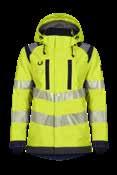





5137 94
FLAME RETARDANT LADIES SHELL JACKET
Non-Metal and Inherent Flame Retardant ladies shell jacket with taped seams and mesh lining. Wind and waterproof according to EN 343.
Size: Ladies S-XXL Colour: 94 yellow/navy Quality: 943, 804, 805, 911
5138 94
FLAME RETARDANT LADIES SHELL JACKET + LINING 9129
Non-Metal and Inherent Flame Retardant ladies shell jacket with taped seams and mesh lining. Comes with sleeveless fibrefur lining 9129 06. Wind and waterproof according to EN 343.
943: Mega TX 230IR, 230 g/m², LOI: 25,5%
5139 94
FLAME RETARDANT LADIES SHELL TROUSERS
Non-Metal and Inherent Flame Retardant ladies shell trousers with taped seams and mesh lining. Wind and waterproof according to EN 343.
OFFICE FR
Office FR is a long-awaited range for workers who need to move between office environments and areas where there is an FR / Arc risk. With Tranemo’s OFFICE FR range, you can be well dressed in the conference room while being able to move in risk environments with adequate protection!
The range is perfect for those who, for example, work with control panels or as an electrician and at the same time want to look good in the office. You don’t have to change before going home, the clothes are just as stylish and comfortable in your free time as they are at work. The trousers are available in both men’s and ladies sizes.
The entire range is made of stretch fabrics, which makes the clothes flexible, comfortable, and light. In addition, the clothes are stylish and have a modern fit. Of course, the clothes also offer excellent Inherent Flame Retardant properties – the chinos are even E3 certified, which is the highest certification for molten iron. Now you no longer need to choose, you can be both stylish, comfortable and safe in risky environments!

The products on this section are certified according to:



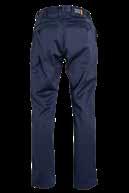

STRETCH FR
Stretch FR offers protective work clothing for the Power and Utility industry and offers some of the most innovative and comfortable garments available today. The Flame Retardant stretch trousers bring comfort to a whole new level – with a modern design, comfortable fit and many practical features.
The stretch fabric is based on an Aramid fabric combined with a high level of stretch fibre - giving you an extremely flexible and comfortable garment that will perform well in industrial laundry processes and offer very high levels of FR protection. The clothing passes EN ISO 11612 A2 (edge ignition), which is unique for protective clothing with stretch.
The softshell jackets are sewn in a soft and flexible wind and water resistant softshell fabric and offer impressive protection against Electric Arc at PPE 3 level. If additional protection is required, the softshell jackets can be used together with two additional layers, according to our certified Tranemo Skinsafe™ system, which gives an impressive ELIM value of as much as 63 cal/cm² (PPE 4). In combination with the stretch trousers, the user will have a complete and comfortable system. The whole range is available in both men’s and ladies sizes and with both increased visibility options or full High Visibility options according to EN ISO 20471.




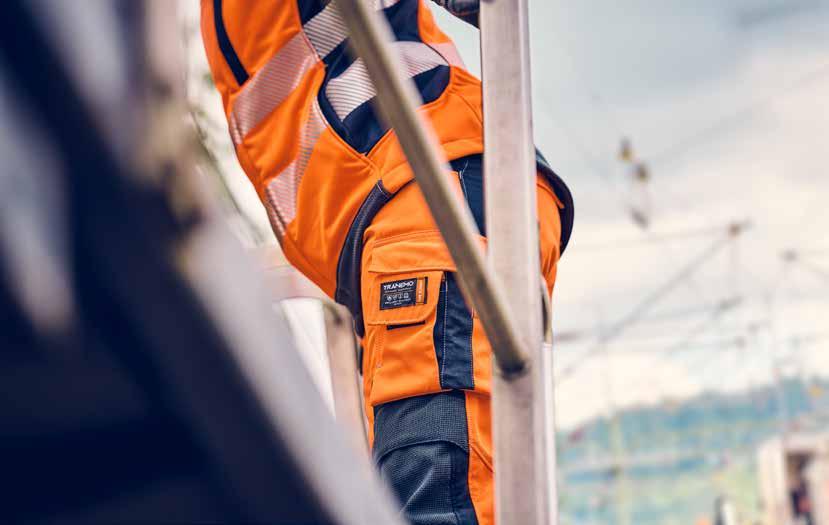




Non-Metal,

5286


5297 84

FLAME RETARDANT LADIES CRAFTSMAN STRETCH TROUSERS
and Inherent
Ladies 6-20
846, 811, 852, 804

5291 84
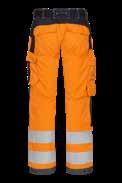
FLAME RETARDANT MATERNITY STRETCH TROUSERS
Size: Ladies 6-20
846, 811, 852, 804















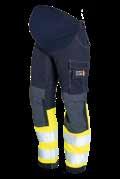
6398





















TRANEMO SKINSAFE
TERA TX -SYSTEM
Tranemo Skinsafe™ is the name of our multi-layer system designed to protect against flame, heat and Electric Arc injuries. Starting at skin level, Tranemo has taken a humancentric approach to design, putting the individual at the focus of protection. The use of multiple thinner layers instead of one thick layer, offers the wearer Flame Retardant protective clothing that is lightweight and gives a better freedom of movement. This allows the wearer to work more effectively and for longer periods.
Tera TX is a very popular layering choice in the power industry and other outdoor work. When Tera TX is combined with one or more layers of other Flame Retardant garments, a system that reaches a higher level of protection is created. The system is also suitable for working outside at different levels of intensity and temperature.




























TERA TX
TERA TX is our largest Flame Retardant range developed in collaboration with the electricity and power industries and companies that require completely metal free garments. The non-metal and Anti-static protective clothing provides the user with the highest levels of functionality, superior comfort and garments with a really long life.
Thanks to the fact that the Flame Retardant garments are non-metal, the risk of sparking is reduced, which is especially important in sensitive ATEX environments. The metal free clothing also eliminates the risk that a metal accessory could fall off the garment and remain in the area after the work has been completed. TERA TX is also recommended when working with certain chemicals and most of the protective clothing is designed according to the requirements of EN 13034.
All protective clothing in TERA TX is light and compliant with high functionality, which makes it comfortable to always wear the right protection at work. All garments meet at least the requirements for PPE category 2 (over 8 cal/cm²) according to EN 61482-1-1 (Open Arc). If the work requires even higher protection against Electric Arc, there are many different layer-on-layer combinations to choose from in Tranemo SkinsafeTM and with different layers it is easy to achieve the right protection for different levels of risk. TERA TX is a comprehensive collection with clothes for all climates including a large range of ladies styles.

Standard quality and washing instruction for the range: The garments in the range may consist of more and/or other qualities. See quality specification for each product or at tranemo.co.uk.




FLAME RETARDANT LADIES CRAFTSMAN STRETCH TROUSERS
Non-Metal and Inherent Flame Retardant ladies trousers with nail pockets and stretch for excellent fit and increased comfort ensuring full mobility at work.
Size: Ladies 6-20
94 yellow/navy
811, 852, 804



5858 81

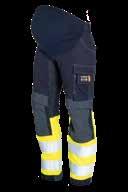



FLAME RETARDANT LADIES TROUSERS
Non-Metal and Inherent Flame Retardant Hi-Vis ladies trousers with nail pockets in a light fabric with a comfortable






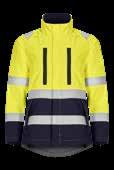
5802 81
Non-Metal


Non-Metal

9065

Size:

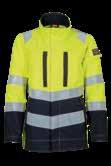
5836


5838
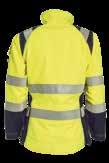
Size: Ladies S-XXL Colour: 94 yellow/navy Quality: 811


5818

6326 81

FLAME RETARDANT LADIES STRETCH TROUSERS
Non-Metal and Inherent Flame Retardant ladies trousers with stretch for excellent fit and increased comfort ensuring full mobility at work.
Size: Ladies 6-20
Colour: 94 yellow/navy Quality: 811, 852, 804

6396 81

FLAME RETARDANT MATERNITY STRETCH TROUSERS
Non-Metal and Inherent Flame Retardant maternity trousers with knitted fabric and buttonhole elastic at the top allowing for different stages of pregnancy. The trousers have specific stretch areas and a wide elastic band in the back.
Size: Ladies 6-20
Colour: 94 yellow/navy Quality: 811, 852, 804, 050

5827
Non-metal

tear resistance.
Size: Ladies 8-20
Colour: 94 yellow/navy Quality: 811



6327 81

FLAME RETARDANT LADIES CRAFTSMAN STRETCH TROUSERS
Non-Metal and Inherent Flame Retardant ladies trousers with nail pockets and stretch for excellent fit and increased comfort ensuring full mobility at work.
Size: Ladies 6-20
Colour: 94 yellow/navy Quality: 811, 852, 804

5862

Size: Ladies 8-20
Colour: 94 yellow/navy Quality: 811, 804, 898


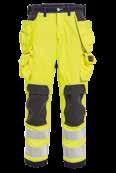
















6094
Non-Metal
Size:



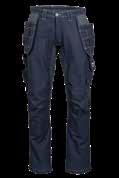


6029
Non-Metal


6059 81

Non-Metal and Inherent Flame Retardant Hi-Vis ladies trousers with nail pockets in a light fabric with a comfortable feel and good tear resistance.
Size: Ladies 10-22
Colour: 03 navy Quality: 811, 804
* For complete information regarding product certifications, visit tranemo.co.uk





TERA TX ARC 2
TERA TX Arc 2 is a lightweight 2-layer solution offering a higher level of protection. The soft and durable Tera TX with ripstop functionality, provides high comfort with a modern design and combined with the soft inner lining, the level of Electric Arc protection is approved for EN 61482-2 APC 2.
Tera TX has been developed in co-operation with some of the market leading Power and Utility industries across Europe and the garments feature the quality and functionality these users require. This product range is optimal for any company working within distribution or production of electrical power or any electrical installation with a demand for protection according to EN 61482-2 APC 2 (7 kA).
Standard quality and washing instruction for the range: The garments in the range may consist of more and/ or other qualities. See quality specification for each product or at tranemo.co.uk.



The products on this section are certified according to:

To achieve a higher protection against Electric Arc, all TERA TX ARC 2 garments are lined with the same lightweight and soft quality fabric as many of our Inherent FR shirts are made from.





5870 81

FLAME RETARDANT LINED LADIES TROUSERS
Non-Metal and Inherent Flame Retardant Hi-Vis
ladies trousers with a wide fit and a thin lining to achieve higher protection against Electric Arc, IEC 61482-2 APC 2.
Size: Ladies 8-20
Colour: 94 yellow/navy Quality: 811, 804, 911

5876 81

FLAME RETARDANT LINED LADIES CRAFTSMAN TROUSERS
Lined, Non-Metal and Inherent Flame Retardant Hi-Vis ladies trousers with nail pockets and a wide fit. Thin lining to achieve higher protection against Electric Arc, IEC 61482-2 APC 2.
Size: Ladies 8-20
Colour: 94 yellow/navy Quality: 811, 804, 911

5893

a thin lining to achieve higher protection against Electric Arc, IEC 61482-2 APC 2.
Size: Ladies 8-20 Colour: 94 yellow/navy
811, 911

5874 81

FLAME RETARDANT LINED LADIES TROUSERS
Non-Metal and Inherent Flame Retardant Hi-Vis ladies trousers with a thin lining to achieve higher protection against Electric Arc, IEC 61482-2 APC 2.
Size: Ladies 8-20
Colour: 94 yellow/navy Quality: 811, 911

5879


6079 81

FLAME RETARDANT LADIES LINED TROUSERS
Non-Metal and Inherent Flame Retardant
Ladies Hi-Vis trousers designed for work where there is a risk of chemical splashes. The trousers have a thin lining to achieve higher protection against Electric Arc, IEC 61482-2 APC 2.
Size: Ladies 8-20, 8T-20T
Colour: 94 yellow/navy Quality: 811, 911
61482-2 APC 2
1149-5




ISO 11612
B1 C1 E1 F1
61482-2 APC 2
15,0 cal/cm²
1149-5
A1+A2



CANTEX ARC 25 +
CANTEX ARC 25+ is a comfortable 2-layer system with protection against high energy levels certified according to EN 61482-2 APC 2. With these Inherent Flame Retardant protective clothing we can offer a comprehensive system for Electric Arc protection with an ELIM value of 27 cal/cm², corresponding to PPE 3 category against Electric Arc accidents (according NFPA 70E).
Cantex Arc 25+ enables a flexible adaptation depending on the risk level and need of protection based on the current work situation. The double layer jackets and trousers with durable and PFAS-free outer fabric Cantex Weld Stretch, means the garments withstand the highest level of protection against splashes of molten metal EN ISO 11612 E3 and the requirements for heavy welding EN ISO 11611 class 2. High performance together with a soft and comfortable feel provides high protection throughout the entire working day. Complete the range with suitable accessories and you can achieve a comprehensive full body protection against Electric Arc.
Standard quality and washing instruction for the range: The garments in the range may consist of more and/or other qualities. See quality specification for each product or visit tranemo.co.uk.
885: Cantex Weld, 365 g/m², LOI: 29,0%
884: Cantex Stretch, 365 g/m², LOI: 29,5%
911: Lining, Tera TX Light, 160 g/m², LOI: 26,7% c95mt

To achieve a high protection against Electric Arc, all CANTEX ARC 25+ garments are lined with the same lightweight and soft quality fabric as many of our Inherent FR shirts are made from.


5181 88

FLAME RETARDANT LADIES LINED TROUSERS
PFAS-free
protection against Electric Arc. The trousers
a high protection against welding and grinding splashes.
Size: Ladies 8-20, 8T-20T
Colour: 94 yellow/navy
Quality: 885, 884, 911

5186 88


5183 88

Size: Ladies 8-20, 8T-20T
94 yellow/navy
885, 884, 911

5180


5185 88
Size: Ladies S-XXL
885, 884, 911

FLAME RETARDANT LADIES LINED CRAFTSMAN TROUSERS
PFAS-free
FLAME RETARDANT LADIES LINED JACKET PFAS-free and Inherent Flame Retardant Hi-Vis

CANTEX WS
CANTEX WELD STRETCH - PFAS-free and Inherent Flame Retardant range for work with heavy welding or molten metals. Cantex WS meets the highest level of protection against splashes of molten metal EN ISO 11612 E3 and the requirements for heavy welding EN ISO 11611 class 2.
The front of the protective clothing is made from an extra durable material that prevents the fabric from burning and makes molten metal run off. Stretch material on the back of the workwear makes the garment comfortable to use thanks to the extra freedom of movement. All Flame Retardant clothing in this range is lightweight, has a modern fit and includes both a men’s and a ladies range.








Two loops for communication equipment.
Chest pocket with flap, tool strap and concealed keyring holder for ID-pocket.
Roomy side pockets with flap.
Inherent flame retardant material in extra strong Cantex Weld.
Fluorocarbon free fabric for reduced environmental impact.

Larger zip pocket.
Fluorescent Cantex Weld.


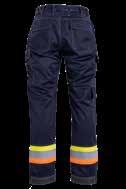
High, protecting collar.
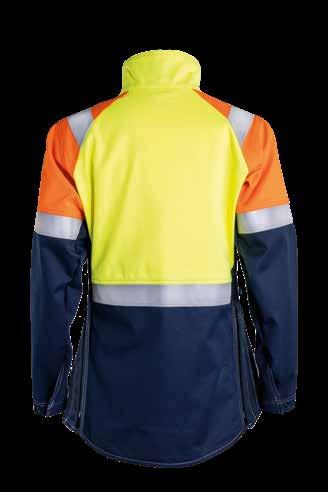
Reflective stripes on shoulders for visibility from above.
Adjustable cuffs.



Fluorescent stretch fabric for high comfort.
Reflective stripes for increased visibility sewn with waterfall principle so that molten metal can run off.
Extended back and two side slits for enhanced movement.



5028 88

FLAME RETARDANT LADIES TROUSERS
PFAS-free and Inherent Flame Retardant Hi-Vis
ladies trousers with front in Cantex Weld for high protection against molten metal and heavy welding. Cantex Stretch at the back provides flexibility and freedom of movement with high levels of comfort.
Size: Ladies 8-20, 8T-20T
Colour: 94 yellow/navy
Quality: 885, 884

5027 88

FLAME RETARDANT LADIES TROUSERS
PFAS-free and Inherent Flame Retardant Hi-Vis
ladies trousers with front in Cantex Weld and back in Cantex Stretch. Cantex Stretch provides the trousers with flexibility and gives you freedom of movement and high comfort, while Cantex Weld at the front gives you extra high protection against welding and grinding splashes.
Size: Ladies 8-20
Colour: 94 yellow/navy
Quality: 885, 884, 802

5058 88

FLAME RETARDANT LADIES CRAFTSMAN
TROUSERS
PFAS-free and Inherent Flame Retardant Hi-Vis
ladies trousers with tool pockets and front in Cantex Weld for high protection against molten metal and heavy welding. Cantex Stretch at the back provides flexibility and freedom of movement with high levels of comfort.
Size: Ladies 8-20, 8T-20T
Colour: 94 yellow/navy
Quality: 885, 884

5057

PFAS-free and Inherent Flame Retardant Hi-Vis ladies trousers with nail pockets, front in Cantex Weld and back in Cantex Stretch. Cantex Stretch provides the trousers with flexibility and gives you freedom of movement with high levels of comfort.
Size: Ladies 8-20
Colour: 94 yellow/navy Quality: 885, 884, 802

5037 88

FLAME RETARDANT LADIES JACKET
PFAS-free and Inherent Flame Retardant Hi-Vis ladies jacket with sleeves and front in Cantex Weld and back in Cantex Stretch. Cantex Stretch provides the jacket with flexibility and gives you freedom of movement with high levels of comfort whilst Cantex Weld at the front gives you extra high protection against welding and grinding splashes.
Size: Ladies S-XXL
Colour: 94 yellow/navy
Quality: 885, 884





5703 88
FLAME RETARDANT LADIES WINTER JACKET
PFAS-free and Inherent Flame Retardant ladies Winter jacket with increased visibility, sleeves and front in Cantex Weld and back in Cantex Stretch. The jacket has a quilted lining and fleece in collar.
Size: Ladies S-XXL
Colour: 94 yellow/navy Quality: 885, 884, 055, 054, 893

5729 88

FLAME RETARDANT LADIES TROUSERS
PFAS-free and Inherent Flame Retardant ladies trousers with increased visibility, front in Cantex Weld and back in Cantex Stretch. Cantex Stretch provides the trousers with flexibility and gives you freedom of movement with high levels of comfort, while Cantex Weld at the front gives you extra high protection against welding and grinding splashes.
Size: Ladies 6-20
Colour: 94 yellow/navy Quality: 885, 884, 802





5737 88
FLAME RETARDANT LADIES JACKET
PFAS-free and Inherent Flame Retardant ladies jacket with increased visibility, sleeves and front in Cantex Weld and back in Cantex Stretch. Cantex Stretch provides the jacket with flexibility and gives you freedom of movement with high levels of comfort, while Cantex Weld at the front gives you extra high protection against welding and grinding splashes.
Size: Ladies S-XXL
Colour: 94 yellow/navy Quality: 885, 884


5799

885, 884, 802, 050



6356 88

FLAME RETARDANT LADIES STRETCH CHINOS
PFAS-free, Non-Metal and Inherent Flame Retardant ladies stretch chinos with excellent fit and increased comfort ensuring full mobility at work.
Size: Ladies 8-20 Colour: 03 navy
Quality: 884
CANTEX 57
CANTEX 57 is our range of Inherent Flame Retardant garments for metal industries with the highest levels of protection against molten iron, E3.
The collection offers a good protection against Electric Arc accidents and is certified for welding. Additionally, your visibility is enhanced with details in High-Visibility and reflective material. The range also includes ladies’ garments.
Standard quality and washing instruction for the range: The garments in the range may consist of more and/or other qualities. See quality specification for each product or or visit tranemo.co.uk.
883: Cantex 2.0, 350 g/m², LOI: 32,3% 882: Fluorescent, Cantex 2.0 HV, 350 g/m², EN ISO 20471, LOI: 32,3% c95mt





5739 88
FLAME RETARDANT LADIES JACKET
Inherent Flame Retardant ladies jacket with increased visibility, in a material with good protection against several molten metals and highest possible protection against molten iron. Size: Ladies XS-3XL
94 yellow/navy
883, 882



5727 88

FLAME RETARDANT LADIES TROUSERS
Inherent Flame Retardant ladies trousers with increased visibility, in a material with good protection against several
Ladies 6-18
883, 882
MAGMA
Magma was developed to withstand the splashes of molten iron, steel, aluminium and many other metals and alloys. The collection is developed for the demanding environment of a primary aluminium works and is certified with the highest protection against aluminium (D3) and iron (E3).
Magma has reinforcements on particularly vulnerable areas and has a high protection against radiant heat. The increased visibility provides protection against incidents in industrial environments. All for a safer workplace.
To achieve the best washing result, contact Tranemo for special washing instructions.
Standard quality and washing instruction for the range: The garments in the range may consist of more and/or other qualities. See quality specification for each product or visit tranemo.co.uk.
873: Magma C, 370 g/m², ISO 9185 Cryolite, LOI: 25,9%
874: Fluorescent, Magma HV, 375 g/m², ISO 9185 Cryolite, EN ISO 20471, LOI: 33,4% d95mt


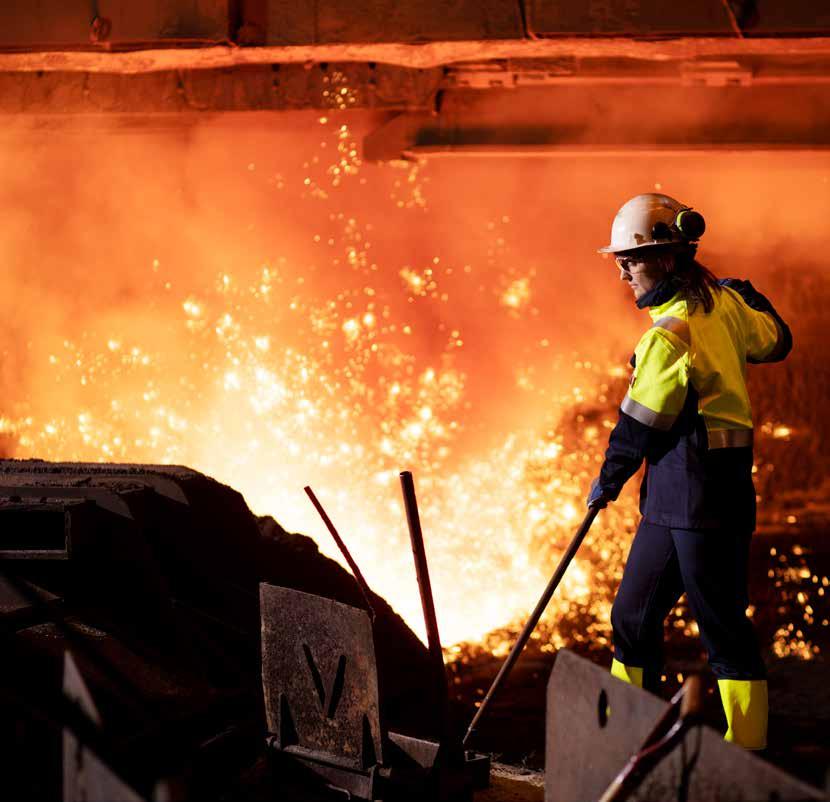







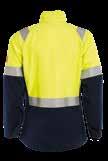
5629 87
FLAME RETARDANT LADIES TROUSERS, SHOE
5628 87 FLAME RETARDANT LADIES TROUSERS
Flame Retardant ladies trousers in a comfortable fabric with the highest protection against molten aluminium. The fabric also has good properties against other molten metals. PFAS-free.
Size: Ladies 8-20 Colour: 94 yellow/navy Quality: 873, 874

ZENITH
ZENITH is designed to make you highly visible in environments where risks can also arise from high voltage as well as metal working. The HV orange colour is certified according to EN ISO 20471 and is required by many for its excellent visibility in snow.
It is also a good option for many other companies that want Flame Retardant, High-Visibility orange garments. ZENITH is Non-Metal and provides protection against Electric Arc incidents and the design offers excellent functionality for the wearer. When used together with our welding accessories, the range also performs well for cutting and welding.
Standard quality and washing instruction for the range: The garments in the range may consist of more and/or other qualities. See quality specification for each product or at tranemo.co.uk.






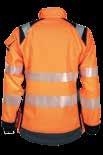





The products on this section are certified according to:
5219
5267 95
FLAME RETARDANT LADIES SOFTSHELL WAISTCOAT
Non-Metal, wind and water resistant Inherent Flame Retardant ladies softshell waistcoat.
Size: Ladies S-XXL Colour: 93 orange/navy Quality: 951, 950, 804
FLAME
5237 84
FLAME RETARDANT LADIES JACKET
Non-Metal and Inherent Flame Retardant Hi-Vis ladies jacket in a comfortable and tear resistant fabric with good colourfastness. The jacket is suitable for work within high voltage environments and where High Visibility is also required.
Size: Ladies S-XXL Colour: 93 orange/navy Quality: 846, 811






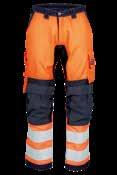
5286 84 FLAME













OUTERWEAR
Many jobs that require Flame Retardant or Electric Arc protection are often performed outdoors in different weather conditions, which can sometimes place great demands on the clothing. They must protect not only against the bad weather but also Flame related risks - whilst also being comfortable and flexible.
Tranemo has many different types of outer garments enabling the user to wear clothing according to the layer-on-layer principle for the best and most lightweight protection. Each Flame Retardant range has suitable winter garments for when work is physically active and also for varying degree of climate.







HOW TO DRESS FOR COLD WEATHER
FROM THE INSIDE OUT
We recommend that you only wear Inherent Flame Retardant protective clothing on your body, from the inside out. This is to avoid the risk of burning cotton, melting polyester or metal transmitting electricity and heat to the skin. Also, do not forget to protect the whole body, from head to toe.
LAYER 1 - INNER LAYER
The innermost layer ensures that you stay warm and dry from the inside. The inner layer is the garment you wear closest to the body, such as a base layer, underwear or socks. If the clothes do not remove moisture from the skin, the body will cool down. In the event of an accident, incorrect choice of underwear can lead to the fabric catching fire and melting into the skin. Therefore, it is important to prioritise the innermost protection. We recommend choosing Inherent Flame Retardant underwear in Merino Wool. Wool underwear is soft and comfortable, provides good insulation and has good moisture-transporting ability. Wool underwear is also antistatic and does not attract bad odours.
LAYER 2 - INSULATING MID-LAYER
An insulating mid-layer should be used to increase comfort during the colder months of the year. This layer creates a barrier and distance between layers 1 and 3 and insulates against both heat and low temperatures. The optimal mid-layer transports the moisture away from the first layer and ensures that the heat does not leave your body. A wool based garment is perfect to use as a mid-layer.
LAYER 3 - PROTECTIVE OUTER LAYER
The primary function of any outer layer is to provide protection - however, to be worn every day, these garments should also fit the body snugly and offer comfort, freedom of movement and meet practical needs such as storage. We recommend inherent Flame Retardant shell garments, these garments have taped seams and are wind and waterproof according to EN 343. Thanks to a very good breathability, these garments are user-friendly and comfortable.
AIR GAP
The air gaps that form between the different layers have a low conductivity which increases the ability to block heat, insulate against the cold and provide extra safety in demanding work situations.
OUTERWEAR



5103 93

FLAME RETARDANT LADIES WINTER JACKET
PFAS-free, Non-Metal
Size: Ladies S-XXL Colour: 94 yellow/navy Quality: 932, 055, 054

5138 94

FLAME RETARDANT LADIES SHELL JACKET + LINING 9129
Non-Metal and Inherent Flame Retardant ladies shell jacket with taped seams and mesh lining. Comes with sleeveless fibrefur lining 9129 06. Wind and waterproof according



5107 93
FLAME

PFAS-free, Non-Metal and Inherent Flame Retardant ladies Hi-Vis winter jacket with
hood, taped seams and quilted lining. Wind and waterproof according to EN 343. Outer fabric with 20% recycled fibres.
Size: Ladies S-XXL
Colour: 94 yellow/navy Quality: 932, 055, 054

5149 95
Non-Metal,

Size: Ladies S-XXL Colour: 94 yellow/navy Quality: 950, 804










jacket
hood, taped seams and quilt lining. Wind and waterproof according to EN 343.
Size: Ladies S-XXL Colour: 93 orange/navy Quality: 822, 932, 054, 055, 893
5802 81
FLAME RETARDANT LADIES WINTER JACKET
Non-Metal and Inherent Flame Retardant Ladies
Winter Jacket with fiberfur lining in body and quilted lining in sleeves. The jacket is made of soft and flexible TERA TX with high tear resistance and good protection against electric arcs.
Size: Ladies S-XXL
94 yellow/navy
811, 060, 054, 911
5806 81
FLAME RETARDANT LADIES WINTER JACKET, HOOD
Non-Metal and Inherent Flame Retardant Ladies
Hi-Vis Winter Jacket with removable hood, fiberfur lining in body and quilted lining in sleeves. The jacket is made of soft and flexible TERA TX with high tear resistance and good protection against electric arcs.
Size: Ladies S-XXL
94 yellow/navy
811, 060, 054, 911
OUTERWEAR





5127


5139


5202


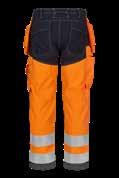








UNDERWEAR
In the event of a flame-related accident, incorrect choice of underwear can lead to the fabric catching fire and melting onto the skin. Therefore, always prioritise the protective layer you use closest to the body. Our Inherent and Flame Retardant underwear for men and ladies is created with safety and comfort in mind.
The unique blend of modacrylic and cotton provides a long-term and comfortable protection that lasts wash after wash. The cotton in the underwear is made from recycled fibres, which reduces the garments environmental impact. The range also includes Flame Retardant boxer shorts in Merino Wool. This gives you a natural antibacterial and functional underwear with high breathability and comfort.



5917 89
FLAME RETARDANT TANK TOP WITH SPORT BRA
Soft, Non-Metal and Inherent Flame Retardant tank top with a simple sports bra sewn-in. 50% recycled cotton. PFAS-free.
Size: Ladies S-XXL Colour: 03 navy Quality: 895, 924





5916

with 50% recycled cotton. PFAS-free.
Size: 75A, 75B, 75C, 80B, 80C, 85B, 85C, 85D, 90C, 90D, 95C, 95D Colour: 03 navy Quality: 924

5997 92
FLAME RETARDANT SPORTS BRA FOR PROSTHESIS

Soft, Non-Metal and Inherent Flame Retardant sports bra with pocket for breast prosthesis on the inside. 50% recycled cotton. PFAS-free.
Size: S(75A-B), M(80A-B), L(85C-D), XL(90C-D), XXL(95C-D), 4XL(105C-D) Colour: 03 navy Quality: 924
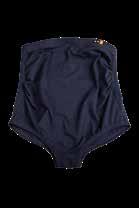
Merino RX





SHIRTS, SWEATSHIRTS & T-SHIRTS
Our Flame Retardant shirt, sweatshirts and T-shirts for ladies are a perfect compliment to your Flame Retardant outerwear. By combining a Flame Retardant shirt, sweatshirt or T-shirt with Flame Retardant underwear and jacket, you get maximum protection to suit your particular risk situation and working environment.

































SWEATERS & UNDERWEAR
Tranemo strives to make it possible for everybody to dress correctly from the inside out, so this year most knitted tops are designed so that even ladies wearing smaller sizes will get a good fit.
The tricot is soft and gentle, which makes the garment adjust to the body whilst also creating the extra protective air gap - this adds enhanced protection when used as part of the Tranemo Skinsafe™ system. The sizes of the accessories are listed and ordered in men’s sizes. Use the conversion table to the right to see which ladies size this corresponds to.































GLOVES
The Eureka gloves are long-awaited solutions for those who work in an Electric Arc risk environment. These gloves offer excellent dexterity combined with high levels of cut protection to protect the hands while working with sharp edges.
The gloves offer a level of breathability and have oil repellent properties. The material in the gloves is based on selected para-Aramids, antistatic yarns and advanced coating technology to provide protection from Heat, Flame and Electric Arc




Waterproof Flame Retardant glove with high Electric Arc protection and good cut resistance. (Eureka 1510-4HAF-12-WP)
Size: 8/S-12/XXL Colour: 00 multi-colour
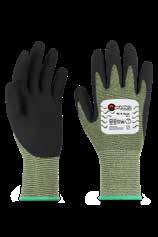



RG00 09
FLAME RETARDANT GLOVES ARC 10
Ultra thin Flame Retardant glove with unique comfort and Electric Arc protection. (Eureka 18-2 HAF-10) Size: 7/XS-12/XXL
RG00 01
FLAME RETARDANT GLOVES CONTACT
Flame Retardant, comfortable glove with good thermal insulation (13-3HNFR)
Size: 7/XS-11/XL Colour: 00 multi-colour
RG00 05
FLAME RETARDANT GLOVES ARC 40
Flame Retardant glove with very high Electric Arc protection. (Eureka 13-4 HAF50)
Size: 8/S-12/XXL Colour: 00 multi-colour
RG00 08
FLAME RETARDANT WATERPROOF GLOVES ARC 12
RG00 04
FLAME RETARDANT GLOVES ARC 16
Glove with high Electric Arc protection. (13-4HFRAF)
Size: 7/XS-12/XXL Colour: 00 multi-colour
RG00 10
INSULATING GLOVES
Electrically insulating gloves, EN 60903 class 0. The gloves are intended for working with live electricity. Leather over-gloves are recommended for additional protection.
Size: 9/M-11/XL Colour: 00 multi-colour
WELDING ACCESSORIES

5572




5576 19 WELDING
Apron


5575 19
WELDING


5577 19
WELDING
Flame

5578 19

WELDING
Flame
9142 88
WELDING
Flame

HEAD PROTECTION
Increase your personal safety with our head protection which consists of Electric Arc protected helmets, face shields, hoods and balaclavas.
The safety helmets meet the requirements of EN 397: 2012+A1:2012 (-40°C - +50°C), EN 50365:2002 Class 0 and EN 166:2001. The range also includes head protection against Electric Arc with a helmet, visor and hood as a certified system. Together with a Flame Retardant balaclava, you get a comprehensive Electric Arc protection.

















6307 90


6397 90
5994

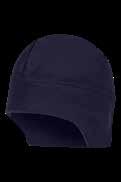



ACCESSORIES
Practical accessories for Tranemo’s Flame Retardant clothing. Choose between Flame Retardant kneepads, armlets, ID card pocket etc.

9074 00

9079 00
FLAME RETARDANT WOOL TERRY SOCK
Heavyweight Inherent Flame Retardant sock in wool terry. PFAS-free.
Size: 37-39, 40-42, 43-45, 46-48
Colour: 07 black
Quality: 45% wool / 35% FR viscose / 15% polyamide / 3% antistatic / 2% elastane

9075 00
FLAME RETARDANT SOCK
Heavyweight Inherent Flame Retardant winter sock in wool/ FR viscose. PFAS-free.
Size: 37-39, 40-42, 43-45, 46-48
Colour: 07 black Quality: 45% wool / 35% FR viscose / 15% polyamide / 3% antistatic / 2% elastane

9171 00
FLAME RETARDANT THICK SOCK
Inherent Flame Retardant thick sock with technically advanced knitted parts for extra good fit. PFAS-free.
Size: 37-39, 40-42, 43-45, 46-48
Colour: 07 black
Quality: 49% wool / 28% viscose / 15% polyamide / 5% elastane / 3% antistatic

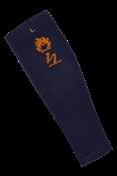
9176 00
FLAME RETARDANT CALF SUPPORT
Inherent Flame Retardant calf support in 50% recycled cotton. PFAS-free.
Size: M(30-36cm) / L(32-38cm) / XL(34-40cm)
Colour: 03 navy
Quality: 48% modacrylic / 30% cotton / 18% elastane / 2% polyamide / 2% antistatic
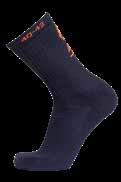
9054 00
FLAME RETARDANT SOCK
Inherent
9172 00
FLAME RETARDANT THICK SOCK

Inherent Flame Retardant knee height thick sock with technically advanced knitted parts for extra good fit. PFAS-free.
Size: 37-39, 40-42, 43-45, 46-48
Colour: 07 black
Quality: 49% wool / 28% viscose / 15% polyamide / 5% elastane / 3% antistatic


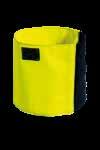
BELTS, BRACES &
ACCESSORIES




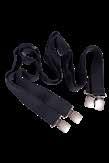



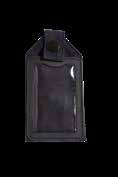



HIGH VISIBILITY & WORKWEAR
For people who have a job that does not require Flame Retardant clothing, we have a wide range of garments suitable for industry, warehousing and crafts professions. If you work outdoors or in busy environments, we recommend our High Visibility clothing for better visibility in both daylight and darkness.
We always choose the best materials for our workwear to ensure high quality, good comfort and excellent durability. Our workwear lasts a long time which helps us contribute towards reducing our impact on the climate.
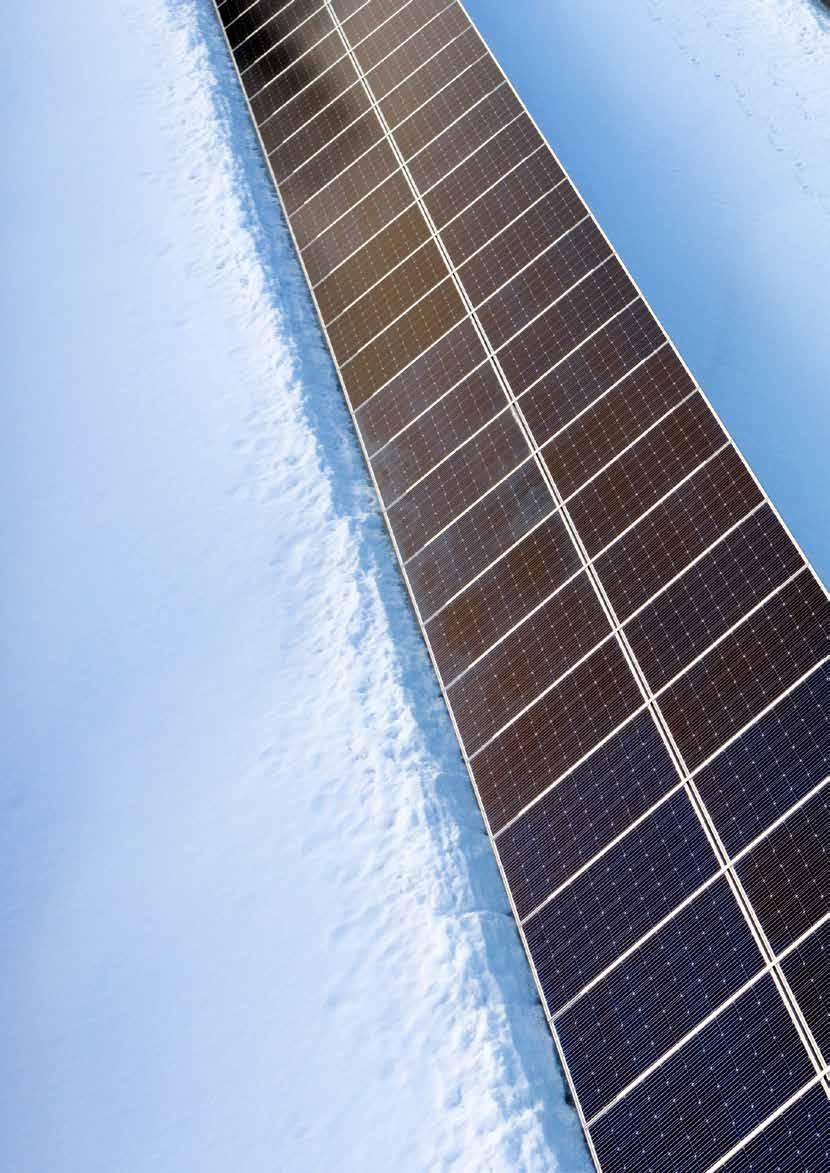
VISION HV OUTERWEAR
VISION HV Outerwear is the range for those who work outdoors in all seasons. When you work outdoors, it is important to be seen properly in daylight as well as in the dark, while staying warm. Vision HV is specially designed to be visible, warm, and comfortable.
Working outdoors means having to work in all weathers, both in snow and cold as well as in rain and wind. This requires high quality, High Visibility clothing that protects you against both the weather and the risks at work. Tranemo’s range of outerwear is functional but also comfortable, in addition they have a modern and stylish fit.
All functional garments have an outer material that is light and flexible with good breathability. The functional garments have taped seams and are certified according to EN 343. The winter-lined functional garments are also certified for cold, EN 342. Vision HV Outerwear is also a good choice from a sustainability perspective as the entire collection is completely free of PFAS. At Tranemo we are actively working to phase out PFAS from our products and reduce the use of chemicals.
With Vision HV, you can be active and perform at work, regardless of the weather.
The products on this section are certified according to:









4303 46
HI-VIS LADIES WINTER JACKET
PFAS-free and durable High Visibility ladies winter jacket with removable hood and taped seams. The jacket is wind and waterproof according to EN 343.
Size: Ladies S-XXL Colour: 93 orange/navy, 94 yellow/navy Quality: 466, 008, 003
4307 46
HI-VIS LADIES SHELL TROUSERS
Durable and PFAS-free High Visibility ladies shell trousers with taped seams, mesh lining and removable braces. Wind and waterproof according to EN 343.
Size: Ladies S-XXL Colour: 93 orange/navy, 94 yellow/navy Quality: 466, 213, 007, 002
9048 00
PILOT CAP
Pilot cap with quilted lining and fibre fur. PFASfree.
Size: M (57/58 cm), L (60/61 cm) Colour: 55 yellow Quality: 466, 003, 008
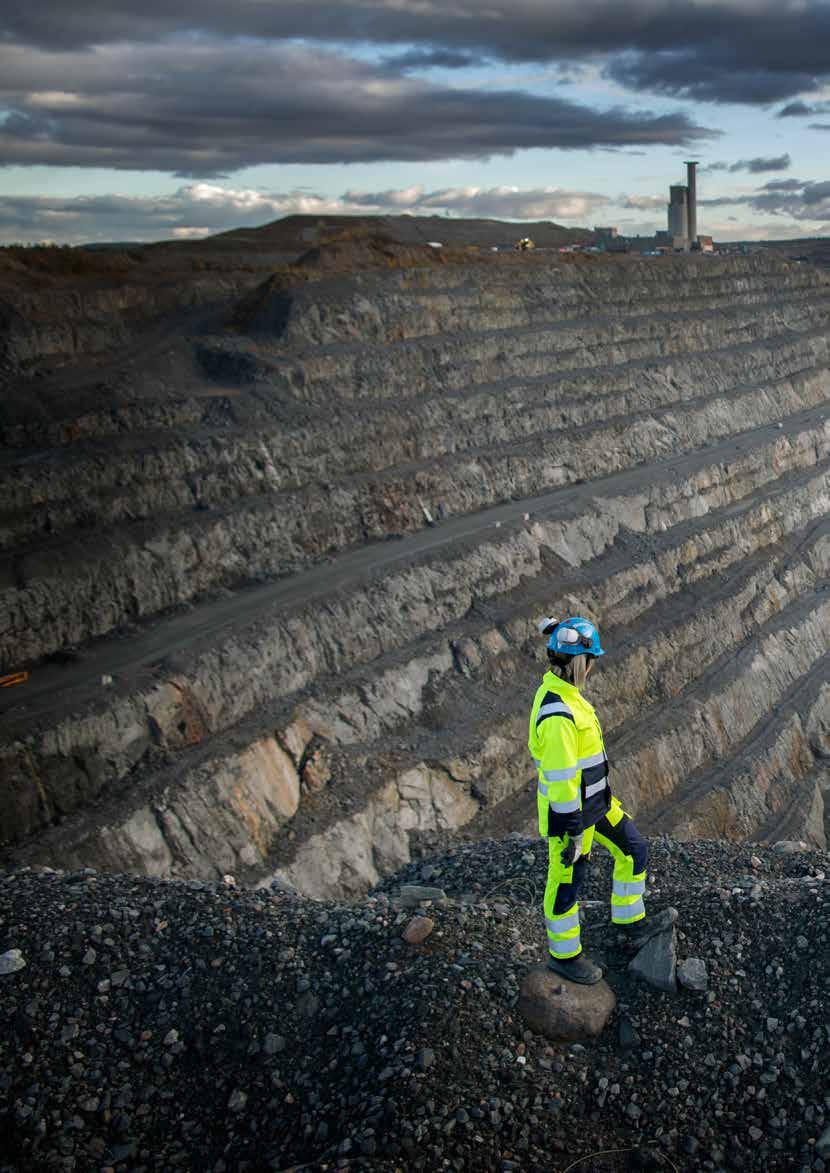
VISION HV
Achieve new levels of comfort and freedom of movement with Vision HV. This High Visibility range has been developed to create maximum mobility for the user during physically demanding work.
If you are looking for comfortable Hi-Vis clothing, Vision HV is the collection for you. The majority of the range is made of flexible and durable stretch fabric, which makes them very comfortable to move in. Stretch panels combined with a base material with a high percentage of cotton, gives a soft feeling against the skin and makes them extremely comfortable to wear during physically demanding work.
All garments are available in both men’s and ladies sizes and thanks to the fibre mixture with polyester, the garments are very durable. To cope with extra hard wear and tear on the knee protection pockets and hanging pockets, they are both reinforced with HTPA - High Tenacity Polyamide - which gives an extra-high wear and tear resistance. This significantly extends the life of the garment. With a modern and comfortable fit, Vision HV is the High Visiblity clothing you never want to take off.
Standard quality and washing instruction for the range: The garments in the range may consist of more and/or other qualities. See quality specification for each product or visit tranemo.co.uk.






4325

























4358 44
HI-VIS LADIES CRAFTSMAN STRETCH TROUSERS
High Visibility ladies trousers with nail pockets, kneepad pockets
HI-VIS MATERNITY STRETCH TROUSERS
HI-VIS LADIES STRETCH TROUSERS









UNISEX
SWEATERS & UNDERWEAR
Tranemo strives to make it possible for everybody to dress correctly from the inside out, so this year most knitted tops are designed so that even ladies wearing smaller sizes will get a good fit.
The tricot is soft and gentle, which makes the garment adjust to the body. The sizes of the accessories are listed and ordered in men’s sizes.
Use the conversion table to the right to see which ladies size this corresponds to.










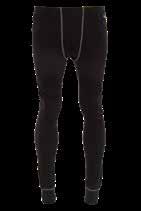

LONG SLEEVES T-SHIRT
SWEATSHIRT
Visibility sweatshirt with round neck in a soft sweatshirt fabric. PFAS-free.
6972 42 LONG JOHNS Long Johns in a 3-function fabric. PFAS-free. Size: XXS-4XL
6975 42 LONG SLEEVES T-SHIRT Long sleeved T-shirt with a 3-function fabric. PFAS-free.

COMFORT STRETCH
Comfort Stretch is a range designed for industries where trousers with added stretch are required. The trousers have stretch zones in 4-way stretch fabric with a lightweight and durable polyester / cotton base material. Stretch zones work perfectly in active work such as switching between standing and sitting, extended movement, etc.
Comfort Stretch is a large range of work clothes, all designed to be as comfortable, flexible, and functional as possible. The collection is created to cope with hard work and with reinforced fabric on exposed areas, the garments have an extra-long lifespan. With a stylish design, comfortable material and stretch, Comfort Stretch are the work clothes you want to use during long working hours. Thanks to the stretch zones, the trousers have a nice and flexible fit that feels comfortable and offers excellent freedom of movement during the demanding working day. If you need extra visibility the trousers also are available with reflective stripes and fluorescent material. The trousers are available in both men’s and ladies’ sizes.
Standard quality and washing instruction for the range: The garments in the range may consist of more and/or other qualities. See quality specification for each product or visit tranemo.co.uk.
ADVANCED STRETCH TROUSERS
Extra durable fly construction meaning reduced strain on the seams.
Stretch zone in the crotch for maximum mobility.
Cargo pocket with flap, concealed keyring holder and strap for ID-pocket, mobile phone pocket with stretch zone.

Stretch on the bottom and on back of legs makes the trousers fit perfectly in physically active work and movement.

and
Cargo pocket with multiple tool pockets and ruler pocket.

Adjustable foot width with plastic press studs.
Knee fabric with stretch zones in 4-way stretch.
The trousers are made of a lightweight
durable polyester/cotton fabric.
Kneepad pockets in HTPA Dobby.
Reinforced back hem in HTPA Dobby with reflective detail



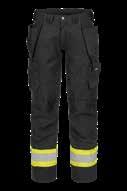









1928 40
LADIES STRETCH TROUSERS
Ladies Trousers with increased visibility and stretch zones for perfect fit, high comfort and mobility.
Size: Ladies 6-20
94 yellow/navy, 95 black/yellow
400, 310, 213, 441
1958 40
LADIES STRETCH TROUSERS
Ladies Craftsman Trousers with increased visibility and stretch zones for perfect fit, reinforced nail pockets and kneepad pockets in HTPA Dobby.
Size: Ladies 6-20
Colour: 94 yellow/navy, 95 black/yellow
400, 310, 213, 441
1926 40
LADIES ADVANCED STRETCH TROUSERS
Advanced ladies craftsman stretch trousers with
1956 40
LADIES ADVANCED STRETCH TROUSERS
Advanced ladies craftsman stretch trousers with
visibility, reinforced nail pockets and many tool pockets for people who require
functionality. The trousers have outside kneepad pockets in HTPA Dobby and 4-way stretch zones for perfect fit, high comfort and mobility.
Size: Ladies 6-20



























COMFORT LIGHT
A classic collection in strong 245 g/m² polyester/cotton that makes this range extremely tough and durable, yet very comfortable to wear. This range is ideally suited for the service and industrial markets.
Comfort Light is particularly suitable for those who work in manufacturing and the automotive industry or have a job where you work with or near delicate surfaces. With plastic zips and hidden buttons on garments, the majority are designed to precisely minimise the risks of scratching fragile surfaces. The clothes have a modern fit and the quality means they hold up well in industrial washing. Comfort Light is the collection of comfortable, light and durable workwear.
Standard quality and washing instruction for the range: The garments in the range may consist of more and/or other qualities. See quality specification for each product or visit tranemo.co.uk.
400: 65% polyester / 35% cotton, 245 g/m² c95mt









CRAFTSMAN PRO
Range in 100% cotton for craftsman, industry and workshops. Craftsman Pro cotton range has many features and a nice fit so that the user can move freely and comfortably while working.
Craftsman, industrial and workplace workwear is always required to be hard wearing, therefore most of the garments in the range are equipped with reinforcements in HTPA Dobby. The reinforcements are placed on exposed areas such as at the knee, hem and in the nail pockets. The entire collection is prewashed to minimise shrinkage and increase comfort.

Standard quality and washing instruction for the range: The garments in the range may consist of more and/or other qualities. See quality specification for each product or visit tranemo.co.uk.
150: 100% cotton-twill, 375 g/m²
441: Fluorescent, 74% polyester / 24% cotton / 2% elastic fibre, 245 g/m², EN ISO 20471



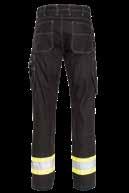






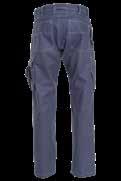






7729 15
LADIES WORK JEANS Smart ladies worker jeans in a durable and heavyweight cotton twill and inside kneepad pockets.
Size: Ladies 8-20 Colour: 07 black, 32 navy Quality: 150
7759 15
LADIES CRAFTSMAN TROUSERS
Functional ladies craftsman trousers in a durable and heavyweight cotton twill with a wide fit. Reinforced nail pockets and kneepad pockets in HTPA Dobby.
7799 15
¾ LENGTH CRAFTSMAN LADIES TROUSERS
3/4 length craftsman ladies trousers in a durable and heavyweight cotton twill with a wide fit. Reinforced nail pockets and kneepad pockets in HTPA Dobby.
Size: Ladies 8-20 Colour: 07 black, 32 navy Quality: 150, 213
ACCESSORIES




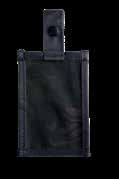

















ON DEMAND



With special orders you can further enhance your identity or refine your purchased stock items. Please contact customer service so that we can help you find the right On Demand products.
INCREASED VISIBILITY
Sew on fluorescent fabric and reflective stripes on unlined garments.
D05A44 Stripe around sleeves
D05B44 Stripe around legs
The stripe can be sewn on around legs or sleeves and is available in colour: 50 Hi-Vis orange, 55 Hi-Vis yellow.
REFLECTIVE STRIPES
Placering byxa: 10-12cm från fåll.
Sew on reflective stripes on unlined garments. The reflective stripes can be sewn on around sleeves, legs and on the back.
50 mm reflective stripes
D06A5006 around sleeves
D06B5006 around legs
D06R5006 on the back
50 mm Flame Retardant reflective stripes
D07A5006 around sleeves
D07B5006 around legs
D07R5006 on the back
20 mm reflective stripes
D06A2006 around sleeves
D06B2006 around legs
D06R2006 on the back
KNEEPAD POCKETS
Sew on kneepad pockets on unlined garments. The kneepad pockets are available in different qualities and colours.
9021 Kneepad pockets
Quality 213: 03 navy, 07 black
Quality 400: 03 navy, 07 black
Quality 873: 03 navy

RUBBER STRENGTHENING
Rubber strengthening of existing kneepad pockets for extra strong durability.
D01100 Rubber strengthening
LEG LENGTH ADAPTION
If you need help adjusting the leg length, we can shorten (D02200) and lengthen (D02300) unlined garments.
FR LEG PROTECTION
Sew on Flame Retardant leg protection in heavy Aramid. The protection provides a very good protection against splashes of molten metal and heat which considerably extends the life of the trousers. Ideal for welding or when cutting metal. The protection also covers a part of the foot and is available in two sizes. It is not possible to sew additional leg protection onto all trousers. Please contact Tranemo for further information.

High leg strengthening, 63 cm 90368067 - 803 Barricader EP
Low leg strengthening, 31 cm 90398067 - 803 Barricader EP



ANKLE ADJUSTMENT
Press studs can be added to adjust the ankle width on unlined garments.
D06100 Button adjustment
IDENTITY POCKET
Sew on identity pockets on unlined garments.
D06800 Identity pocket


BADGES
Sew on badges.
D067 Sew on badge
VELCRO
Sewing on black velcro (soft part) for use of a name badge.
D0690007 Sewing on velcro
005 - 10 cm x 2 cm
006 - 11 cm x 2 cm
007 - 12 cm x 2 cm
MATERNITY TROUSERS
D07800 - Sewn in soft rib over the stomach area with adjustable elasticated upper and elasticated waist at back. Can be added to most Tranemo trousers without tool pockets.
HEATSEAL BADGES
When ordering a heatseal badge, the cost is made up of two charges. The first charge is for making the heatseal badge and the second charge for applying the heatseal badge to the garment. The heatseal badges are charged on the first order and the price varies depending on size of the badge, how many colours are being used and quantity being ordered. Minimum order quantity for 1-3 colours is 25 pcs and then in multiples of 25. Minimum order quantity for more than 3 colours is 100 pieces. Tranemo has 13 standard colours to choose from. If there is a requirement for a specific PMS colour, there is an additional cost for ordering the special colour.
InduTrans - This is an all-round heatseal badge that works on most materials. Covers dark garments to 99% and can be washed in 60 degrees and tumble dried in low temperatures (garment washed and dried inside out). InduTrans is tested and complies to the requirements for EN ISO 14116 and 1149-5 when applied to most Tranemo Flame Retardant fabrics.
Artwork - originating cost - To ensure the best quality, please supply us with a digital eps file, with text outlines. If the original is not in an acceptable file format, there will be a cost for re-designing.
Applying instructions - InduTrans heatseal badges should be applied by a heatseal machine for 8-12 seconds at 160°C. The surface of the material should be flat and without seams. For Flame Retardant garments, the best placement is where there are several layers of fabric underneath - this will help protect the wearer against extra heat that a heatseal badge may retain during use. Water resistant garments can be preheated to get a better finish.
Location of heatseal badges, max 100 cm².
Depending on the shape of the heatseal badge and the design of a garment, it may be that it is not possible or suitable to apply the heatseal to some areas of the garment.
Location of heatseal badges, max 500 cm².
Depending on the shape of the heatseal badge and the design of a garment, it may be that it is not possible or suitable to apply the heatseal to some areas of the garment.
Dark grey Black
Light grey White Yellow
Dark red Green
Dark green
Light blue
Royal blue Navy Red Orange
Standard colour:
CARE
It is essential that all Flame Retardant garments are washed in a professional manner in accordance with specific washing instructions to ensure that the features and benefits are not compromised or lost. Only synthetic detergents should be used. Do not use soap detergent or softeners and garments should not be bleached.
Tranemo recommends:
• Protective clothing certified according to EN ISO 20471 must be washed separately or alternatively together with other garments certified according to EN ISO 20471.
• For garments that contain wool, proper care is very important. Wool is sensitive to high pH levels and should therefore be washed in a neutral pH gentle wash process. Protective clothing containing wool should also be washed on a special wool program.
Contact Tranemo for full information on washing procedures and detailed care instructions.
Impregnation/finish & re-impregnation
In order to meet the requirements of EN 13034 and maintain chemical protection, protective clothing needs to be re-impregnated if necessary. Protective clothing should be washed in industrial laundries, which are able to carry out the re-impregnation correctly and in an environmentally friendly way.
Tranemo has carried out several tests at an accredited institute, which proves that a fabric certified for EN 13034 (acid and alkaline) and an impregnation containing PFAS, can advantageously be re-impregnated with a PFAS-free finish and still achieve the same result. Note that the markings on the garments must only be for acid and base in order for the change to be approved. If you are unsure about the handling, contact us and we will help you.
Washing symbols
a
B

Wash at max 40°C
3 Do not tumble dry
Wash at max 40°C, gentle wash 5 Tumble dry low temperature C
Wash at max 60°C
D
O Do not iron
Wash at max 60°C, gentle wash N
T Do not dry clean
Heat sealed reflective stripes
Ironing max 110°C
M Ironing max 150°C
Stitched on reflective stripes can feel hard, stiff and give an uncomfortable feel to knitwear that is often soft and elastic. The use of segmented heat sealed reflective stripes makes the garments more compliant compared to ordinary stitch-on reflective stripes. Even on some lighter garments in woven fabrics, heat sealed reflective stripes have a strong advantage in terms of comfort.
To maintain reflection, the heat sealed reflective stripes should be washed at a neutral pH (i.e. do not use detergents with pH above 8).
Tranemo recommends:
• Washing at maximum 60°C
• Avoid alkaline detergents, pH<8 is recommended.
• Do not use softener, bleaching agents or optical whiteners.
• We recommend hang drying or tumble dry at max 60°C. For tunnel drying, maximum 100°C is recommended.
Standard
EN ISO 11612
IEC 61482-2
EN 61482-2
EN ISO 11611
EN 13034 Type PB [6]
EN 1149-5

EN ISO 20471
Repairing a Flame Retardant garment
Do not use damaged Protective Clothing that cannot be repaired (i.e. holes or tears in the garment, closure not functioning properly). Small damage that does not affect the garments overall protection can be repaired, prolonging the lifetime of a garment by repairing it will also reduce our environmental impact. Repairs should not impair the performance of the Protective Clothing and any repairs should only be done in accordance with Tranemo repair instructions and using identical fabrics and components.
If needed, Tranemo can provide a repair kit as an optional product and provide guideline repair instructions.
Exchange - Disposal
When a garment has been in direct contact with flame or strong heat, it may be brittle and weakened and should therefore be disposed of. If the garment has been exposed to chemicals which have penetrated the fabric, this will normally mean a degradation of the protection and it should be taken into consideration whether the garment should be discarded and replaced.
Heat seal badges and embroidery on PPE Clothing
Heat seal badges need to be tested and approved before they are used on Flame Retardant garments. The heat seal badges that Tranemo produce are tested and approved for EN ISO 14116 and EN 1149-5 when attached to a Tranemo Flame Retardant garment. When a heat seal badge is exposed to high heat, it normally retains the energy for a longer period of time than the fabric. From a safety perspective, a large solid print is not recommended. The best placement is where there are several layers of fabric underneath that will help protect your skin.
Badges attached to a Flame Retardant garment should be made from Flame Retardant fabric. For EN 1149-5 garments, badges should be permanently attached. This should be done in such a way that separation between the badge and the clothing material is avoided. If embroidery is applied directly to a Flame Retardant garment, it should be made from Flame Retardant thread. Incorrect embroidery, badge or heat seal badges attached to an FR garment can have a negative effect on the FR properties. Heat seal badges, badges and labels that are smaller than 10 cm² do not need to be flame tested according to the standard EN ISO 14116.
Heat seal badges
Heat seal badges must be approved according to EN ISO 14116 Index 3.
Preferably applied where there are several layers of fabric underneath. Avoid covering large areas of the fabric.
Heat seal badges greater in width than 5 cm and bigger than 100 cm² and thickness more than 2 mm must be tested according to EN 1149-5.
Maximum size depends on size of garment and high visibility area.
Embroidery
Embroidery thread must be approved according to EN ISO 14116 Index 3.
Preferably applied where there are several layers of fabric underneath.
Embroideries greater in width than 5 cm and bigger than 100 cm² and thickness more than 2 mm must be tested according to EN 1149-5.
Maximum size depends on size of garment and high visibility area.
Applying a logo on high visibility garments
Badges
Badge fabric must be approved according to EN ISO 14116 Index 3.
Badges greater in width than 5 cm and bigger than 100 cm² and thickness more than 2 mm must be tested according to EN 1149-5 and permanently attached.
Maximum size depends on size of garment and high visibility area.
In order for a garment certified according to EN ISO 20471 to still meet the minimum fluorescent surface area requirement of the standard after applying a logo, care should be taken to ensure the logo should neither be too large or placed on the fluorescent surface so as to compromise the minimum required fluorescent surface area. Therefore, trousers should not have logos applied to the fluorescent surface area. The same recommendation applies to upper parts certified according to EN ISO 20471 class 3 with relatively small fluorescent surface area ( e.g. short-sleeved garments, ladies garments or garments with contrast fabric).
Please ask Tranemo for the high visibility details / area on each garment to know any limitation.
QUALITY AND FABRIC
THE IMPORTANCE OF QUALITY CONTROL
Our aim is to ensure that the garments we manufacture meet the needs and expectations of our customers. In order to achieve this, we place great importance ensuring the highest quality of the fabrics and components that make up our garments. The quality control process covers all stages of manufacturing – from product development through to finished garments. This ensures that Tranemo garments offer the very best in workplace protection, performance, comfort and will meet the demands of today’s varied working environments.
Before a finished garment can be approved, it must pass the following quality control processes:
• Before production begins, all materials, fabric and components are fully inspected and approved.
• All fabrics and reflective materials are tested in our own test house. The different characteristics are tested depending on how the garment will be used and what performance and protection it needs to give. Important parameters are shrinkage, tear strength, colour fastness, pilling and combustibility
• Certification of products and fabrics are made after extensive testing in our external certified test houses.
• The quality control process also includes areas such as delivery and stock control of finished garments.

FABRIC INFORMATION
The table contains descriptions of all fabric in the catalogue. The column to the left contains the fabric number which is also stated in the product text. Column two contains the composition, weight and other properties. If the fabric is certified the EN standards are noted.
No.Fabric description
002Lining, 100% polyester, 70 g/m². PFAS-free.
003100% polyester quilt with polyester wadding, 80 g/m² PFAS-free.
004100% polyester quilt with polyester wadding, 110 g/m² PFAS-free.
007100% polyester mesh. PFAS-free.
008100% polyester pile, 360 g/m² PFAS-free.
009100% polyester pile, 540 g/m² PFAS-free.
050Cantex Heavy Rib - 58% modacrylic / 36% cotton / 4% elastic fibre / 2% antistatic, 300 g/m² Inherent Flame Retardant tricot. PFAS-free. EN ISO 11612 A1+A2 B1 C1 F1 IEC 61482-1-1:2019, ELIM: 5,1 cal/cm², EBT: 6,3 cal/cm² EN 1149-3
051Cantex Light Rib – 56% modacrylic / 37% cotton / 5% elastic fibre / 2% antistatic, 230 g/m²
Inherent Flame Retardant tricot. PFAS-free.
EN ISO 11612 A1+A2 B1 C1 F1 IEC 61482-1-1:2019, ELIM: 5,1 cal/cm², EBT: 6,3 cal/cm² EN 1149-3
054Quilt FR - 45% modacrylic / 35% cotton / 18% polyamide / 2% antistatic, 160 g/m² with polyester wadding, 80 g/m²
Inherent Flame Retardant fabric with Flame Retardant polyester wadding. PFAS-free.
055Quilt FR - 45% modacrylic / 35% cotton / 18% polyamide / 2% antistatic, 160 g/m² with polyester wadding, 120 g/m² Inherent Flame Retardant fabric with Flame Retardant polyester wadding. PFAS-free.
060Pile FR - 87% modacrylic / 13% cotton, 320 g/m²
Inherent Flame Retardant pile. PFAS-free.
EN ISO 14116 index 3
11355% polyester / 45% cotton, 200 g/m²
Pique. Pleasant, shape retaining interlock with cotton lining. PFAS-free.
EN ISO 20471 for fluorescent colours
RIS-3279-TOM fluorescent orange certified for UK railways
No.Fabric description
131100% cotton, 325 g/m²
Comfortable cotton twill. PFAS-free.
150100% cotton, 375 g/m²
Heavyweight cotton twill. Durable. A prewashed garment minimises future shrinkage. PFAS-free.
192Graphite Light - 70% carbon / 30% aramid, 245 g/m²
Inherent Flame Retardant fabric for protection for welding. PFAS-free.
EN ISO 14116 index 3
EN ISO 11612 B1 C1 F1
EN ISO 11611 class 1
213HTPA Dobby - 100% polyamide, 260 g/m²
Reinforcement fabric structured weave with extra high durability. PFAS-free finish.
22160% cotton / 40% polyester, 200 g/m²
Cotton/polyester twill, with feel of cotton and advantages of polyester for durability and washing characteristics. PFAS-free.
26165% polyester / 35% cotton, 500 g/m²
Bonded jersey with 100% polyester fleece. PFAS-free finish.
26351% polyester / 49% cotton, 300 g/m²
Sweatshirt quality with ring spun reverse. PFAS-free.
26480% polyester / 50% cotton, 300 g/m²
Sweatshirt quality with ring spun reverse in fluorescent colours. PFAS-free.
EN ISO 20471
RIS-3279-TOM fluorescent orange certified for UK railways
303Beaver nylon - 50% polyamide / 50% cotton, 240 g/m²
Twill with nylon on outside which gives hard wearing and abrasion durability. Water repellent impregnation supplemented with a PU-coated inside that gives protection against the wet. PFAS-free finish.
3104-way stretch, 50% polyamid / 42% polyester / 8% elastic fibre, 250 g/m²
Twill with stretch function in all directions. PFAS-free finish.
40065% polyester / 35% cotton, 245 g/m²
Cotton/polyester twill, with high comfort level and excellent washing characteristics. The cloth is durable, highly colour-fast and wrinkle resistant. Quick drying. PFAS-free.
No.Fabric description
42855% polyester / 45% cotton, 215 g/m²
Tricot. 2-layer jacquard with 3-functions that transports and absorbs moisture while insulating heat. PFAS-free.
44054% cotton / 46% polyester, 260 g/m²
Fluorescent twill with ripstop for enhanced tear strength.
Cotton inside for extra high comfort level.
EN ISO 20471 for fluorescent colours
RIS-3279-TOM fluorescent orange certified for UK railways
44174% polyester / 24% cotton / 2% elastic fibre, 245 g/m²
Fluorescent satin with stretch. Cotton inside for extra high comfort level. PFAS-free.
EN ISO 20471 for fluorescent colours
RIS-3279-TOM fluorescent orange certified for UK railways
460T-TEX - 100% polyester, PU coated, 180 g/m²
Wind and water repellent. PFAS-free. Waterproof 5 000 mm.
464T-TEX Plain - 100% polyester, PU-coated, 200 g/m²
Fluorescent polyester fabric with structured yarn. PFAS-free finish.
465T-TEX 3L - 100% polyester, PU-laminated, 145 g/m²
Fabric with 3 layer function.
Wind and waterproof according. Waterproof 10 000 mm.
Breathability / water vapor resistance 8.2 Pa m²/W.
EN 343 class 4:4
466T-TEX EWR - 100% polyester, PU laminated, 205 g/m²
Wind and waterproof. PFAS-free finish.
Waterproof 5000 mm.
Breathability / water vapor resistance 17.2 Pa m²/W.
EN 343 class 4:3
EN ISO 20471 for fluorescent colours
RIS-3279-TOM fluorescent orange certified for UK railways
470100% polyester, 300 g/m²
3 layer fleece with PU laminate and mesh reverse, wind resistant. PFAS-free.
48092% polyester / 8% elastic fibre, 325 g/m²
Softshell, PU laminated with polyester fleece. PFAS-free finish.
Wind and water repellent. Waterproof 3000 mm.
EN ISO 20471 for fluorescent colours
RIS-3279-TOM fluorescent orange certified for UK railways
50065% polyester / 35% cotton, 300 g/m²
Cotton/polyester twill, with high comfort level and excellent washing characteristics. The cloth is durable, highly colour-fast and wrinkle resistant.
Comfort finish gives a pleasant cotton feel. PFAS-free.
510100% polyester fleece, 220 g/m²
Face side brushed. PFAS-free.
511100% polyester fleece, 280 g/m²
Double brushed. PFAS-free.
EN ISO 20471 for fluorescent colours
RIS-3279-TOM fluorescent orange certified for UK railways
515100% polyester, 215 g/m²
Double diamond quilt. PFAS-free.
801Barricader TC - 100% para-aramid, with polymer coating, 545 g/m²
Inherent Flame Retardant reinforcement fabric with good protection against molten metal, convective heat and radiant heat.
EN ISO 11612 A1+A2 B2 C1 E3
EN ISO 11611 class 1
EN 1149-3
802 Barricader EP - 99% para-aramid / 1% antistatic, 545 g/m²
Inherent Flame Retardant reinforcement fabric with good protection against molten metal splashes.
EN ISO 11612 A1 B1 C1 D3 E3 F2
EN ISO 11611 class 1
EN 61482-1-2:2014 APC 1
EN ISO 20471 for fluorescent colours
EN 1149-3
804HTFR Dobby - 39% modacrylic / 28% polyamide / 17% cotton / 15% aramid / 1% antistatic, 295 g/m²
Inherent Flame Retardant reinforcement fabric
EN ISO 11612 A1 B1 C1 F1
EN ISO 11611 class 1
EN 1149-3
805FR Mesh – 98% aramid / 2% antistatic, 110 g/m²
Inherent Flame Retardant mesh. PFAS-free.
EN ISO 14116 index 3
EN 1149-3
811Tera TX - 45% modacrylic / 35% cotton / 18% polyamide / 2% antistatic, 260 g/m²
Inherent Flame Retardant fabric with pleasant feel. Extra reinforced yarn gives good tear resistance despite low weight.To maintain chemical protection (EN 13034), the protective clothing must be re-impregnated after washing.
EN ISO 11612 A1+A2 B1 C1 E1 F1
EN ISO 11611 class 1
EN 61482-1-2:2014 APC 1
IEC 61482-1-1:2019, ELIM: 8.1 cal/cm², EBT: 8.7 cal/cm²
NFPA 70E, ASTM F1506
LOI 29.8%
EN 1149-3
EN 13034
EN ISO 20471 for fluorescent colours
No.Fabric description
812Tera TX TW - 45% modacrylic / 35% cotton / 18% polyamide / 2% antistatic, 260 g/m²
Inherent Flame Retardant twill. To maintain chemical protection (EN 13034), the protective clothing must be re-impregnated after washing.
EN ISO 11612 A1+A2 B1 C1 F1
EN 61482-1-2:2014 APC 1
IEC 61482-1-1:2019, ELIM: 9,1 cal/cm², EBT: 10 cal/cm²
LOI 29,8%
EN 1149-3
EN 13034
821Edge HVO - 50% polyester / 27% modacrylic / 22% cotton / 1% antistatic, 370 g/m²
Inherent Flame Retardant fabric. PFAS-free finish. To maintain chemical protection (EN 13034), the protective clothing must be re-impregnated after washing.
EN ISO 11612 A1 B1 C1 D1 E3 F1
EN ISO 11611 class 2
EN 61482-1-2:2014 APC 1
IEC 61482-1-1:2019, ELIM: 9.2 cal/cm², ATPV: 11.0 cal/cm²
LOI 27.5%
EN 1149-3
EN 13034 (only for acid and alkaline)
EN ISO 20471 for fluorescent colours
RIS-3279-TOM fluorescent orange certified for UK railways
822Edge 350 IR - 45% modacrylic / 33% cotton / 50% polyester / 2% antistatic, PU-laminated, 350 g/m²
Inherent Flame Retardant fabric with PU laminate. To maintain chemical protection (EN 13034), the protective clothing must be re-impregnated after washing.
Wind and waterproof. Waterproof > 8000 mm.
Breathability / water vapor resistance 19.8 Pa m²/W.
EN ISO 11612 A1 B1 C1 E1 F1
EN ISO 11611 class 1
EN 61482-1-2:2014 APC 1
EN 61482-1-2:2014 APC 2 (822+054)
IEC 61482-1-1:2009, ATPV: 9,8 cal/cm²
IEC 61482-1-1:2019, ELIM: 30 cal/cm², ATPV: 41 cal/cm² (822+054)
LOI 29.5%
EN 1149-3
EN 13034
EN ISO 20471 for fluorescent colours
RIS-3279-TOM fluorescent orange certified for UK railways
EN 343, class 4:4
830Apex 300 - 98% aramid / 2% antistatic, 300 g/m²
Inherent Flame Retardant satin with good Flame Retardant protection, combined with high durability. To maintain chemical protection (EN 13034), the protective clothing must be re-impregnated after washing.
EN ISO 11612 A1+A2 B1 C1 F1
EN ISO 11611 class 1
EN 61482-1-2:2014 APC 1
IEC 61482-1-1:2019, ELIM: 9.4 cal/cm², ATPV: 12 cal/cm²
LOI 28%
EN 1149-3
EN 13034
832Apex 220 – 98% aramid / 2% antistatic, 220 g/m²
Inherent Flame Retardant twill. To maintain chemical protection (EN 13034), the protective clothing must be re-impregnated after washing.
EN ISO 11612 A1 B1 C1 F1
LOI 28%
EN 1149-3
EN 13034
846Ara TX - 36% modacrylic / 33% polyester / 30% aramid / 1% antistatic, 260 g/m²
Inherent Flame Retardant fabric in fluorescent colour. To maintain chemical protection (EN 13034), the protective clothing must be re-impregnated after washing.
EN ISO 11612 A1 B1 C1 F1
EN ISO 11611 class 1
EN 61482-1-2:2014 APC 1
IEC 61482-1-1:2019, ELIM: 8,0 cal/cm², ATPV: 8,6 cal/cm²
LOI 30.1%
EN 1149-3
EN 13034
EN ISO 20471
RIS-3279-TOM fluorescent orange certified for UK railways
850Denim Stretch 1.0 - 57% modacrylic / 37% cotton / 5% elastic fibre / 1% antistatic, 345 g/m²
Inherent Flame Retardant unwashed jeans fabric. PFAS-free.
EN ISO 11612 A1 B1 C1 F1
EN ISO 11611 class 1
EN 61482-1-2:2014 APC 1
IEC 61482-1-1:2019, ELIM: 8,3 cal/cm², EBT: 14 cal/cm²
LOI 29.4%
EN 1149-3
852FR Stretch - 78% aramid / 50% elastic fibre / 2% antistatic, 320 g/m²
Inherent Flame Retardant twill with high elasticity. PFAS-free.
EN ISO 11612 A1+A2 B1 C1 F1
EN 61482-1-2:2014 APC 1
IEC 61482-1-1:2019, ELIM: 10 cal/cm², ATPV: 11 cal/cm²
EN 1149-3
No.Fabric description
862Outback 250 - 65% viscose / 22% aramid / 12% polyamide / 1% antistatic, 250 g/m²
Inherent Flame Retardant fabric with good Flame Retardant protection combined with a soft feeling and good washing properties.
EN ISO 11612 A1+A2 B1 C1 E1 F1
EN ISO 11611 class 1
EN 61482-1-2:2014 APC 1
IEC 61482-1-1:2019, ELIM: 7,6 cal/cm², ATPV: 11 cal/cm²
LOI 28.9%
EN 1149-3
EN 13034
EN ISO 20471 for fluorescent colours
863Outback HW – 74% viscose / 15% aramid / 10% polyamide / 1% antistatic, 425 g/m²
Inherent Flame Retardant fabric suitable for welding. PFAS-free finish. To maintain chemical protection (EN 13034), the protective clothing must be re-impregnated after washing.
EN ISO 11612 A1+A2 B1 C1 E3 F1
EN ISO 11612 B2 C2 (863+920)
EN ISO 11611 class 2
EN 61482-1-2:2014 APC 2
IEC 61482-1-1:2019, ELIM: 16 cal/cm², ATPV: 18 cal/cm²
LOI 28.9%
EN 1149-3
EN 13034 (only for acid and alkaline)
864Outback J220 - 40% viscose / 26% modacrylic / 18% cotton / 8% polyamide / 6% aramid / 2% antistatic, 225 g/m²
Inherent Flame Retardant knitted interlock, with a low weight and high ELIM. PFAS-free.
EN ISO 11612 B1 C1 F1
EN 61482-1-2:2014 APC 1
IEC 61482-1-1:2019, ELIM: 8,3 cal/cm², ATPV: 10 cal/cm²
EN 1149-3
EN ISO 20471
873Magma C - 55% viscose / 40% wool / 5% polyamide, 370 g/m²
Inherent Flame Retardant fabric. Comfortable wool quality suitable for aluminium industry. PFAS-free.
EN ISO 11612 A1 + A2 B1 C2 D3 E3 F1
EN ISO 11612 B2 C2 (873+901)
EN ISO 11611 class 2
EN 61482-1-2:2014 APC 1
IEC 61482-1-1:2009, ATPV: 9.5 cal/cm²
LOI 25.9%
Cryolite ISO 9185 85 g
874Magma HV - 54% viscose / 50% wool / 50% polyamide / 5% aramid / 1% antistatic, 375 g/m²
Inherent Flame Retardant fabric. Fluorescent yellow. Suitable for aluminium industry. PFAS-free.
EN ISO 11612 A1+A2 B1 C1 D3 E3 F1
EN ISO 11611 class 2
EN 61482-1-2:2014 APC 1
IEC 61482-1-1:2009, ATPV: 14.0 cal/cm²
LOI 33.4%
Cryolite ISO 9185 > 100g
EN ISO 20471
875Magma S - 70% viscose / 50% wool / 10% polyamide, 310 g/m²
Inherent Flame Retardant fabric. Comfortable wool quality suitable for aluminium industry. PFAS-free.
EN ISO 11612 A1+A2 B1 C1 D3 E3 F1
EN ISO 11611 class 1
EN 61482-1-2:2014 APC 1
IEC 61482-1-1:2019, ELIM: 6,0 cal/cm², ATPV: 7,4 cal/cm²
LOI 27.8%
Cryolite ISO 9185 94g
EN ISO 20471 for fluorescent colours
882
883 Cantex 2.0 / Cantex 2.0 HV - 53% modakryl / 36% bomull / 6% viskos / 3% aramid / 2% antistat, 350 g/m²
Inherent Flame Retardant fabric with good protection against molten metal, convective heat or radiant heat. Highest possible protection against molten steel. To maintain chemical protection (EN 13034), the protective clothing must be re-impregnated after washing. PFAS-free.
EN ISO 11612 A1+A2 B1 C1 E3 F1
EN ISO 11612 C2 (882/883+920)
EN ISO 11611 class 2
EN 61482-1-2:2014 APC 1
IEC 61482-1-1:2019, ELIM: 9,2 cal/cm², ATPV: 13,0 cal/cm²
LOI 32.3%
EN 1149-3
EN 13034
EN ISO 20471 for fluorescent colours
No.Fabric description
884Cantex Stretch - 48% modacrylic / 35% cotton / 12% polyamide / 3% elastic fibre / 2% antistatic, 365 g/m²
Inherent Flame Retardant fabric with highest possible protection against molten iron. Stretch fibre in the fabric increases the comfort. PFAS-free finish. To maintain chemical protection (EN 13034), the protective clothing must be re-impregnated after washing.
EN ISO 11612 A1+A2 B1 C1 E3 F1
EN ISO 11612 C2 (884+920)
EN ISO 11611 class 2
EN 61482-1-2:2014 APC 1
IEC 61482-1-1:2019, ELIM: 12 cal/cm², ATPV: 18 cal/cm²
LOI 29,5%
EN 1149-3
EN 13034 (only for acid and alcaline)
EN ISO 20471 for fluorescent yellow
885Cantex Weld - 50% modacrylic / 36% cotton / 12% polyamide / 2% antistatic, 365 g/m²
Inherent Flame Retardant fabric with highest possible protection against molten iron. Suitable for welding and grinding. PFAS-free finish. To maintain chemical protection (EN 13034), the protective clothing must be re-impregnated after washing.
EN ISO 11612 A1+A2 B1 C1 E3 F1
EN ISO 11612 C2 (885+920)
EN ISO 11611 class 2
EN 61482-1-2:2014 APC 1
IEC 61482-1-1:2019, ELIM: 13 cal/cm², EBT: 16 cal/cm²
LOI 29,0%
EN 1149-3
EN 13034 (only for acid and alcaline)
EN ISO 20471 for fluorescent yellow
891 Cantex Dual 220 - 35% modacrylic / 30% polyester / 21% viscose / 9% cotton / 3% polyamide / 2% antistatic, 220 g/m²
Double knitted, inherent Flame Retardant tricot with a high comfort level in fluorescent colours. PFAS-free.
EN ISO 11612 A1 B1 C1 F1
EN 61482-1-2:2014 APC 1
IEC 61482-1-1:2009, ATPV: 7.3 cal/cm²
LOI 25.4%
EN 1149-3
EN ISO 20471
892 Cantex Dual 320 - 42% modacrylic / 21% polyester / 18% cotton / 14% viscose / 3% polyamide / 2% antistatic, 320g/m²
Double knitted, inherent Flame Retardant tricot with a high comfort level in fluorescent colours. PFAS-free.
EN ISO 11612 A1 B1 C2 F1
EN 61482-1-2:2014 APC 1
IEC 61482-1-1:2009, ATPV: 11.3 cal/cm²
LOI 28.3%
EN 1149-3
EN ISO 20471
893Cantex Fleece - 45% modacrylic / 35% cotton / 18% polyester / 2% antistatic, 330 g/m²
Inherent Flame Retardant fleece. PFAS-free.
EN ISO 11612 A1+A2 B1 C2 F2
EN 61482-1-2:2014 APC 1
EN 1149-3
894Cantex Jersey 170AT - 54% modacrylic / 44% cotton / 2% antistatic, 170g/m²
Inherent Flame Retardant single jersey. PFAS-free.
EN ISO 11612 A1+A2 B1 C1 F1
EN 61482-1-2:2014 APC 1
EN 1149-3
895Cantex Jersey AT - 60% modacrylic / 38% cotton / 2% antistatic, 180 g/m²
Inherent Flame Retardant single jersey. PFAS-free.
EN ISO 11612 A1+A2 B1 C1 F1
EN 61482-1-2:2014 APC 1
IEC 61482-1-1:2019, ELIM 3,9 cal/cm², EBT: 4,6 cal/cm²
LOI 26,0%
EN 1149-3
EN ISO 20471 for fluorescent colours
896Outback J245 - 79% viscose / 10% aramid / 10% polyamide / 1% antistatic, 245 g/m²
Inherent Flame Retardant single jersey with protection against Electric Arc, open arc cat.2. PFAS-free.
EN ISO 11612 A1 B1 C1 F1
IEC 61482-1-1:2009, EBT: 8.5 cal/cm²
EN 1149-3
897Cantex Pique - 60% modacrylic / 38% cotton / 2% antistatic, 220 g/m²
Inherent Flame Retardant pique. PFAS-free.
EN ISO 11612 A1+A2 B1 C1 F1
EN 61482-1-2:2014 APC 1
IEC 61482-1-1:2019, ELIM: 4,8 cal/cm², EBT: 5,4 cal/cm²
LOI 26.1%
EN 1149-3
No.Fabric description
898Cantex Jersey IR - 54% modacrylic / 44% cotton / 2% antistatic, PU-laminated, 210 g/m²
Functional and light lining in Inherent Flame Retardant fabric.
Wind and water repellent laminate. PFAS-free. Waterproof 10000 mm
EN ISO 14116 Index 3
EN 61482-1-2:2014 APC 2 (811+898)
IEC 61482-1-1:2019, ELIM: 19 cal/cm², ATPV: 21 cal/cm² (811+898)
EN 1149-3
899Cantex Terry - 60% modacrylic / 38% cotton / 2% antistatic, 290 g/m²
Inherent Flame Retardant sweatshirt tricot with ring spun reverse. PFAS-free.
EN ISO 11612 A1+A2 B1 C2 F2
EN 61482-1-2:2014 APC 1
IEC 61482-1-1:2019, ELIM: 8,6 cal/cm², EBT: 11 cal/cm²
LOI 26.5%
EN 1149-3
EN ISO 20471 for fluorescent colours
901Merino RX - 60% wool / 38% viscose / 2% antistatic, 200 g/m²
Inherent Flame Retardant knitted rib in soft merino wool and FR viscose. PFAS-free.
EN ISO 11612 A1+A2 B1 C1 F1
EN 61482-1-2:2014 APC 1
IEC 61482-1-1:2019, ELIM: 4,6 cal/cm², ATPV: 5,3 cal/cm²
LOI 27.7%
EN 1149-3
903Merino TX - 60% wool / 38% viscose / 2% antistatic, 360 g/m²
Inherent Flame Retardant terry in soft merino wool and FR viscose. PFAS-free.
EN ISO 11612 A1+A2 B1 C2 D2 E1 F1
EN 61482-1-2:2014 APC 1
IEC 61482-1-1:2019, ELIM: 9,6 cal/cm², EBT: 10 cal/cm² LOI 28.7%
EN 1149-3
904Merino JX - 55% wool / 43% viscose / 2% antistatic, 220 g/m²
Inherent Flame Retardant knitted jacquard in soft merino wool and FR viscose. PFAS-free.
EN ISO 11612 A1+A2 B1 C1 F1
EN 61482-1-2:2014 APC 1
IEC 61482-1-1:2019, ELIM: 4,6 cal/cm², ATPV: 5,3 cal/cm² LOI 27,7%
EN 1149-3
905Merino FX - 60% wool / 38% viscose / 2% antistatic, 220 g/m²
Inherent Flame Retardant knitted terry in soft merino wool and FR viscose. PFAS-free.
EN ISO 11612 A1+A2 B1 C1 F1
EN 61482-1-2:2014 APC 1
IEC 61482-1-1:2019, ELIM: 6,1 cal/cm², ATPV: 6,5 cal/cm²
LOI 28,7%
EN 1149-3
911Tera TX Light - 45% modacrylic / 35% cotton / 18% polyamide / 2% antistatic, 160 g/m²
Shirt quality in comfortable, Inherent Flame Retardant twill. PFAS-free.
EN ISO 11612 A1 B1 C1 F1
EN 61482-1-2:2014 APC 1
IEC 61482-1-1:2019, ELIM: 5,0 cal/cm², ATPV: 5,8 cal/cm²
LOI 26,7%
EN 1149-3
EN ISO 20471 for fluorescent colours
912Tera TX Light FC - 45% modacrylic / 35% cotton / 18% polyamide / 2% antistatic, 160 g/m²
Shirt quality in comfortable, Inherent Flame Retardant twill. To maintain chemical protection (EN 13034), the protective clothing must be reimpregnated after washing.
EN ISO 11612 A1 B1 C1 F1
EN 61482-1-2:2014 APC 1
IEC 61482-1-1:2019, ELIM: 5,0 cal/cm², ATPV: 5,8 cal/cm² LOI 26,7% EN 1149-3
EN ISO 20471 for fluorescent colours
EN 13034
913Tera TX Light Stretch - 45% modacrylic / 34% cotton / 17% polyamide / 2% elastic fibre / 2% antistatic, 180 g/m²
Stretchy shirt quality in comfortable, Inherent Flame Retardant twill. PFAS-free.
EN ISO 11612 A1 B1 C1 F1
EN 61482-1-2:2014 APC 1
IEC 61482-1-1:2019, ELIM: 5,5 cal/cm², ATPV: 6,3 cal/cm²
EN 1149-3
920Cantex JX - 60% modacrylic / 38% cotton / 2% antistatic, 235 g/m²
Inherent Flame Retardant channel stitched tricot. PFAS-free.
EN ISO 11612 A1 B1 C1 F1
EN 61482-1-2:2014 APC 1
IEC 61482-1-1:2019, ELIM: 7,5 cal/cm², EBT: 8 cal/cm² LOI 30.1%
EN 1149-3
924Cantex JL - 57% modacrylic / 37% cotton / 4% elastic fibre / 2% antistatic, 210 g/m²
Inherent Flame Retardant single jersey with elastic fibre. PFAS-free.
EN ISO 11612 A1+A2 B1 C1 F1
IEC 61482-1-1:2019, ELIM: 4,3 cal/cm², EBT: 4,5 cal/cm² EN 1149-3
No.Fabric description
932Cantex 240IR Recycled – 50% modacrylic / 43% cotton / 6% polyamide / 1% antistatic, PU-laminated, 300 g/m²
Inherent Flame Retardant twill with PU laminate and 50% recycled fibre. PFAS-free. To maintain chemical protection (EN 13034), the protective clothing must be re-impregnated after washing.
Wind and waterproof. Waterproof 10 000 mm.
Breathability / water vapor resistance 18,7 Pa m²/W.
EN ISO 11612 A1+A2 B1 C1 F1
EN ISO 11611 class 1
EN 61482-1-2:2014 APC 1
IEC 61482-1-1:2019, ELIM: 8,6 cal/cm², ATPV: 10 cal/cm²
EN 13034
EN 1149-3
EN ISO 20471 for fluorescent colours
EN 343 class 4:3
943Mega TX 230IR - 40% modacrylic / 59% viscose / 1% antistatic, PU-laminated, 230 g/m²
Inherent Flame Retardant fabric with PU laminate. To maintain chemical protection (EN 13034), the protective clothing must be re-impregnated after washing.
Wind and waterproof. Waterproof 8 000 mm.
Breathability / water vapor resistance 8.3 Pa m²/W.
EN ISO 11612 A1+A2 B1 C1 F1
EN ISO 11611 class 1
EN 61482-1-2:2014 APC 1
EN 61482-1-2:2014 APC 2 (943+054)
IEC 61482-1-1:2019, ELIM: 20,0 cal/cm² ATPV: 21,0 cal/cm² (943+805)
LOI 25.5%
EN 13034
EN 1149-3
EN ISO 20471 for fluorescent colour
EN 343 class 4:4
950Windtech FR 340 - 54% modacrylic / 42% cotton / 2% polyamide / 1% elastic fibre / 1% antistatic, PU-laminated, 340 g/m²
Inherent Flame Retardant softshell. To maintain chemical protection (EN 13034), the protective clothing must be re-impregnated after washing. Wind and water repellent. Waterproof 10 000 mm.
Breathability / water vapor resistance 22.0 Pa m²/W.
EN ISO 11612 A1 B1 C1 F1
EN ISO 11611 class 2
EN 61482-1-2:2014 APC 2
IEC 61482-1-1:2019, ELIM: 23.0 cal/cm², EBT: 28.0 cal/cm²
LOI 29.5%
EN 1149-3
EN 13034
EN ISO 20471 for fluorescent colours
951Windtech FR HVO - 45% modacrylic / 36% cotton / 18% polyester / 1% antistatic, PU-laminated, 385 g/m²
Inherent Flame Retardant softshell. To maintain chemical protection (EN 13034), the protective clothing must be re-impregnated after washing.
Wind and water repellent. Waterproof 10 000 mm.
EN ISO 11612 A1 B1 C2 F2
EN ISO 11611 klass 2
EN 61482-1-2:2014 APC 2
IEC 61482-1-1:2019, ELIM: 12.0 cal/cm², ATPV: 19.0 cal/cm²
LOI 29,5%
EN 1149-3
EN 13034
EN ISO 20471
RIS-3279-TOM fluorescent orange certified for UK railways
955Windtech FR 550 - 53% modacrylic / 42% cotton / 3% polyamide / 1% elastic fibre / 1% antistatic, PU-laminated, 550 g/m²
Inherent Flame Retardant softshell with very high protection against Electric Arc. To maintain chemical protection (EN 13034), the protective clothing must be re-impregnated after washing.
Wind and water repellent. Waterproof 10 000 mm.
Breathability / water vapor resistance 26,8 Pa m²/W.
EN ISO 11612 A1 B2 C2 F2
EN 61482-1-2:2014 APC 2
IEC 61482-1-1:2019, ELIM: 40 cal/cm², EBT: 44 cal/cm²
LOI 29,5%
EN 1149-3
EN 13034
EN ISO 20471 for fluorescent colours

SIZE GUIDE
Our size guide will help you find the right size for your Tranemo garment. Men and ladies have different body types and should therefore, use different body measurements when choosing the correct size. Take the measurements directly on your underwear, room for movement is already calculated into the design of the garment.
LADIES
The Swedish ladies size 34-48 was previously UK size range 8-22.
As a result of customer feedback that the UK size was a smaller fitting, during 2024 the size range will be moved down to sizes 6-20. If you have a repeat order or want an identical size as previously ordered, please use the Swedish sizing 34-48. Please be aware, there will be a transition period where paper labels will be correct, but some sewn in labels may have old sizing on it.
Primarily use hip measurements to choose the right size.
C-size (Regular waist and regular leg length)
UK Size 68101214161820
Size 3436384042444648
Waist inches
29/31”30/31”32/31”33/31”34/31”36/31”38/31”40/31”
Hip (cm) 90-9393-9696-9999-102102-106106-110110-115115-120
Waist (cm) 71-7474-7777-8080-8484-8888-9292-9696-101
Inside leg (cm) 7878787878787878
Inside leg inches (cm) 30.7”30.7”30.7”30.7”30.7”30.7”30.7”30.7”
C-size (Regular waist and longer leg length)
UK Size 6T8T10T12T14T16T18T20T
Size 34T36T38T40T42T44T46T48T
Waist inches 29/32”30/32”32/32”33/32”34/32”36/32”38/32”40/32”
Hip (cm) 90-9393-9696-9999-102102-106106-110110-115115-120
Waist (cm) 71-7474-7777-8080-8484-8888-9292-9696-101
Inside leg (cm) 8282828282828282
Inside leg inches (cm) 32.3”32.3”32.3”32.3”32.3”32.3”32.3”32.3”
Primarily use hip measurements to choose the right size.
Size SMLXLXXL
Chest (cm)
82-8888-9494-100100-107107-116
Hip (cm) 92-9896-103101-108106-114 113-121
Waist (cm) 70-8074-8480-9085-9592-102
Shoulder+Sleeve (cm) 71-7373-7574-7676-7877-79
Corresp. mens size XXSXSSML

CHEST


Primarily use waist and inside leg measurements to choose the right size of trousers.
C-size (Regular waist and regular leg length)
Size 4446485052545658606264
Waist inches
30”R32”R33”R34”R36”R38”R40”R42”R 45”R48”R50”R
Waist (cm) 74-7878-8282-8686-9090-9494-9999-104104-110110-116116-122122-128
Hip (cm) 9498102106110114118122126130134
Inside leg (cm) 7980818283848585858585
Inside leg inches
31”31.5”32”32.4”32.8”33.1”33.5”33.5”33.5”33.5”33.5”
C-size (Regular waist and longer leg length)
Size 146148150152154156
Waist inches
32”T33”T34”T36”T38”T40”T
Waist (cm) 78-8282-8686-9090-9494-9999-104
Hip (cm) 98102106110114118
Inside leg (cm) 858687888990
Inside leg inches
33.5”
D-size (Larger waist and shorter leg length)
Size 8084889296100104108112116120
Waist inches 28"S30”S32”S33”S34”S36”S38”S40”S42”S
Waist (cm) 72-7676-8080-8484-8888-9292-9696-100100-105105-110110-116116-122
Hip (cm) 909396100104108112116120124128
Inside leg (cm) 7878787878787980818181
Primarily use chest measurements to choose the right size.
Size XXSXSSMLXLXXL3XL4XL
Chest (cm) 78-8684-9290-9896-104102-110108-116114-122120-128126-134
Hip (cm) 86-9290-9694-10098-106104-112110-118116-124122-130128-136
Shoulder+Sleeve (cm) 73-7675-7777-8080-8281-8483-8584-8786-8887-90
Shirt size 33-3435-3637-3839-4041-4243-4445-4647-4849-50
C-size mens 40-424446-485052-545658-606264-66

